#Collision response service
Explore tagged Tumblr posts
Text

Ensuring Safety with Overhead Doors: Guidelines for Installation and Operation
Overhead doors offer convenience and security to residential and commercial properties alike. However, ensuring the safe installation and operation of these doors is paramount to prevent accidents and injuries. Here are some essential guidelines to follow:
Professional Installation: Always opt for professional installation services when setting up overhead doors. Certified technicians have the expertise and knowledge to install the doors correctly, ensuring optimal functionality and safety.
Regular Maintenance: Conduct regular inspections and maintenance checks on your overhead doors. Look for signs of wear and tear, such as frayed cables, loose hardware, or damaged panels. Promptly address any issues to prevent accidents and prolong the lifespan of the door.
Test Safety Features: Modern overhead doors come equipped with safety features such as auto-reverse mechanisms and sensors. Regularly test these safety features to ensure they are functioning correctly. This involves placing an object in the door's path during closing to see if it reverses direction automatically.
Keep Clear of Moving Parts: Educate household members and employees about the dangers of standing or walking beneath a closing overhead door. Ensure that children and pets are kept away from the door's moving parts to avoid accidents.
Lubrication: Keep the moving parts of your overhead door properly lubricated to ensure smooth operation and prevent excessive wear. Use a high-quality lubricant recommended by the manufacturer for optimal results.
Address Repairs Promptly: If you notice any issues with your overhead door, such as strange noises, uneven movement, or malfunctioning safety features, address them promptly. Delaying repairs can lead to further damage and compromise the safety of the door.
Emergency Release Mechanism: Familiarize yourself with the emergency release mechanism of your overhead door. In case of a power outage or malfunction, knowing how to manually operate the door can prevent being locked in or out of your property.
Keep Remote Controls Secure: If your overhead door operates using a remote control, keep it out of reach of children and unauthorized individuals. Consider using a keypad entry system or smart technology for added security and convenience.
Weather Considerations: Extreme weather conditions, such as high winds or heavy snowfall, can impact the performance of your overhead door. Ensure that the door is properly reinforced and maintained to withstand harsh weather conditions.
#Emergency door repair#Door collision repair#Door impact damage service#Rapid door restoration#Urgent door fixing#Immediate door replacement#Collision response service#Door crash repair#Emergency entryway restoration#Quick door collision assistance#Impact damage repair service#Urgent door maintenance#Crashed door service
0 notes
Text
THE PSYCHOLOGY IN F1 [T.W. 8]
Pairing: Toto Wolff x Psychologist Reader.
Summary: Y/n (a young psychologist, religion teacher, an inspiring person Toto thought he could find only in utopia) working in Mercedes AMG Petronas Formula 1 Team. What can possibly go wrong?
Warnings: none
*-*-*-*-*-*-*-*-*-*-*-*-*-*-*-*-*-*-*-*-*-*-*-*-*-*-*-*-*-*-*-*-*-*-*-*-*-*
Belgian Grand Prix – Qualifying Day, in full tension.
The weather is unpredictable. Rain and sun alternate without warning. One of the drivers had a collision on track that left him out of the top 10. Frustration rises like humidity. In the pit, there are raised voices, tense gestures, and eyes that no longer meet.
The race engineer bangs a folder on the table, while George takes off his helmet and throws it angrily. The mechanics are stiff. The atmosphere is stifling.
You come and don't say anything at first. Only observe. You approach him, who is panting, jaw clenched.
''Are you hurt?''
''No, but I could have been killed with that car in those conditions. And you know what's worse? They didn't listen when I said I didn't want to go out on those tires!''
''They listened to you, but they didn't process it. Sometimes tension obscures judgment. You reacted only as you know. Your body protects you. Now, do you want them to really listen to you?''
He looks at you. Something in your tone calms him. He nods. You look at the engineer and the chief of strategy. ''We can talk, but without blame. The goal isn't to find someone responsible, but to understand what went wrong together.''
Toto, from the sidelines, watches silently. He doesn't intervene. He lets you be.
.
.
30 minutes later...
You lead the conversation with a clarity that disarms egos. You're not giving a traditional therapy session. It's you, with all your intuition, empathy, and emotional courage at the service of the team.
When the atmosphere deflates and George, now calmer, appreciates the opportunity, a brief silence falls. Then, a mechanic comments:
''I still don't know when you're a psychologist and when you're just… you.''
''Me neither. I guess it's the same thing.''
Toto Wolff, who was listening from the back, crossing his arms and with a small but genuine smile.
''And that's why you're indispensable.''
.
.
Later, in the hospitality tent, you are reviewing some notes. Toto approaches with a cup of tea, without speaking from the start. He places it beside you.
''I saw how you handled everything. Without imposing, without raising your voice. Just… making everything fall into place around you.''
You can't help but look at him sweetly. ''Sometimes it comes naturally to me. Sometimes I break down inside and I hide it well.''
''I don't want you to ever have to dissemble with me. I know you're strong, but you also deserve support.''
You look at him. Toto is there. Not as a boss. Not as a self-interested man. But as someone who sees you. Whole and complete.
''Thank you. I don't always know where I stand with you… but I realize I'm more steadfast when you're around.''
''Maybe because I feel that way about you too.''
That day, the team not only managed to correct mistakes and better plan Sunday's race. Something deeper was woven between you and everyone. Your presence is no longer just professional. It's a point of emotional balance, a heart that beats to the rhythm of the team… and someone else's.
And as night falls over Spa-Francorchamps, Toto watches you laugh with two mechanics, relaxed at last. And he thinks, without even trying to stop himself:
"How did I do all this without Y/n before?"
PART 9
#f1 imagine#f1 x reader#fanfic#formula one imagine#toto wolff fanfic#toto wolff imagine#toto wolff x reader#toto wolff x y/n#toto wolff x oc#toto wolff#mercedes amg f1#mercedes amg petronas#formula one x reader#formula one#formula 1#formula one fanfiction#toto wolff x you
49 notes
·
View notes
Text
BEACON OF HOPE ~ Sanji

LA!sanji x fem!reader
Warnings ! : being yelled at, daddy issues bc it’s the best fanfic seasoning, angst, fluff, abuse from parental figure, double standards, misogyny (or sexism?)
Nattie speaks: a lil something to y’all fed + I need a man like Sanji to comfort me and my daddy issues🙏


ZEFF WAS IN SOME SORT OF MOOD that day. The harsh trudging of his footsteps as he exited and entered the kitchen while bellowing orders was more then enough evidence to prove your point. Nobody in the kitchen even dared to breath the wrong way, afraid of the ex-pirates response. Even Sanji had managed to bite his tongue and hold back any snide remarks to keep the Zeff’s anger at bay.
You avoided any trouble all day, not causing a disturbance when a costumer was being particularly rude. You simply did you’re job was a waitress, took down orders and dropped them off at the kitchen, later coming back to collect the food and give them to the diners. You’d refused to even think about slacking off just a bit, not going over to Sanji for a couple flirtatious exchanges like usual. The Baratie was flooded in a thick tension but all was well, for the most part.
The business was booming with people, that certain point of the day where all the seats were filled with snobby, rich people. You’d been rushing between tables, taking down orders as quick as possible since these people didn’t recognize patience. It was overwhelming and overstimulating, making your temple throb in pain as you dragged you feet into the kitchen. You called out the order in a loud voice, sticking the scribbled notes onto the overhead where Carne cooked up a steak.
“Table 8 says they’ve been waiting for their drink for twenty minutes, y/n, hurry it up!” Zeff’s voice sudden boomed as he marched into the kitchen, you nearly flinched at the sound of his voice, swallowing down a remark about how those twenty minutes was actually a dramatized two minutes. Nonetheless you collected a few cups and took them straight out to table 8, some rich couple and their equally rich kids.
You gave them a kind smile, despite wanting to desperately slap their cocky smirks off their faces. “And are you ready to order?” You questioned in a chirpy tone, reaching for the notepad in your pocket and the pen tucked behind your ear.
“My, we just got our drinks, give us a minute to look over the menu.” The woman scoffed, you sucked you teeth in, blinking slowly and offering another wide grin.
“My apologies, I’ll be back in a bit.” You shoved the notepad back in its place, walking to a booth that was empty, though the table crowded in a mess of dishes. You reached for the sliver platter that held the receipt and a pitiful amount of berry left as a tip. “Assholes.” You mumbled, taking the money and collecting a few plates and cups.
The brewing storm in your head had begun to cloud your vision, sometimes you just wanted to quit and make a dramatic exit out of the shitty restaurant but you never had the balls to. The whole service you’d been good, held your shit together despite wanting to break down on the inside, bit your tongue, but the one moment you got vulnerable ended in tragedy.
In a fit of cursing out some of the customers out in your head, you didn’t take notice of the waiter coming out the kitchen at the exact same time you were entering. The collision led to the shatter of two plates, one cup and a mess of silverware clanking on the floor.
“Fuck.” You mumbled, watching as the waiter scurried away nervously, leaving you at the scene to deal with the approaching man.
“What the hell are you doing!” Zeff shouted, tone practically rumbling the whole restaurant as you stared up at him in utter shock. You felt like a kid again, having to guiltily stand there while an adult went on off on you. The man threw insults that he’d probably regret the next day, humiliating you over a few broken plates. You just stared down at the dirty floor, feeling tiny compared to him. “Clean this up and get out of sight!”
He walked past you, leaving the judging eyes of the kitchen crew to watch as you bent down, slowly picking up the larger chunks. You didn’t even realize that Sanji was approaching till the shadow of his figure loomed over you. You jumped, backing away in fear as you wide eyes met his. The boy frowned, taking notice at the tears pooling in your eyes and you’re quivering lip. You looked like a kicked puppy, that was enough for him to toss the shards of porcelain and help you up.
He took you out the back door, away from the staring eyes as he heard small whimpers escape your mouth. “It’s okay, darling, it’s okay.” He whispered, arms wrapped around your figure, his hand coming up to brush your hair. “The old man is just giving a hard time because he has a stick up his arse.”
You let out silent cries, tears dripping down your face and onto Sanji’s apron, his soothing tone helping ease the tightness in your chest. You felt stupid, and weak, crying over getting reprimanded for something that was your fault. Now your were taking valuable time away from both you and Sanji’s jobs, that’s all you thought about and it made you cry harder.
Funny enough, Sanji was thinking the opposite. He didn’t care about his job, or the broken pieces still laying on the kitchen floor, or even the fact that Zeff could come out any minute and yell at the two for slacking. All he cared about in that moment was you, making sure you cried all the tears you had, making sure that your trembling hands stilled. He placed chaste kisses on your head, standing there until your sobbing quieted down.
He slowly pulled away, hands still placed on your shoulder with a cautious look. “You look lovely, darling.” He chuckled at the sight of the black mascara that began to run down your cheek.
“Piss off.” You muttered humorously, taking the clean rag he offered and wiping away any evidence of your breakdown. “I hate today.”
“I know you do.” He whispered back, taking the cloth and gently swiping away the parts that you missed. “Beautiful as always.”
“Why are old people such assholes.” You shoved your head into his chest, words muffling as you did.
“Because they can’t get it up anymore without breaking a hip.”
You let out a chuckle, smiling against the material of his shirt, his chest vibrating with his own laugh and it calmed you down even more. You took in a deep breath, hands reaching down low, making the cook tense. You grabbed the pack of cigarettes he always had in his pockets, lifting the box with a sly smile.
“Get your head out the gutter.” He laughed quietly, reaching for the lighter in his other pocket as you shoved a cigarette into your mouth.
“Ready to go back in?” He questioned, watching as you puffed out a cloud of smoke.
“Yeah.” You replied quietly, taking a long drag while Sanji opened the door, allowing you to step in first. Gentleman, as always. “If Zeff smells this thing, I’m blaming you.”
The older man hated the stench of burnt out cigarettes that lingered in the air because Sanji had bad habit of lightening one every few hours. The ash tray on the extra table shoved in the corner of the kitchen was full, and Zeff always lectured the blonde on it, Sanji typically never cared enough to stop.
“Blame me all you want, darling, I’ll take the fall each time.” He winked at you, grabbing a dust pan and broom. He lazily swept up the mess, dumping it into the nearby garbage bin, something he knew Zeff would also yell at him about.
“He’s gonna kill you.”
“I’d like to that old man try.” Sanji smirked, giving you that classic flirty look that made the butteries flutter in your stomach. “Now, get back to work.”
You mocked a salut, rolling you’re eyes as you made your way to the kitchen doors, “Yes, chef.”

THE REST OF THE DAY HAD GONE smoothly, the sun hid itself behind the horizon as the dinning area emptied. Most of the guest had migrated to the bar, the party boomed at the other end of the restaurant.
You and Sanji were the only two in the kitchen, he was showing off some new dish he came up with, claiming it was the best thing on the VIP menu.
“We have a VIP menu?”
“Yeah, but it’s so secret that none of the guest know about it, not even the old man.” Sanji grinned, hand off the plate to you. “Now, the food critic decides.”
You rolled your eyes with a playful smile, picking up the fork and scooping up a bite into your mouth. The mixtures of taste were perfectly balance, unique flavors creating a wonderful sensation. There something about Sanji’s cooking that made you feel so safe and warm, you always teased that he was like a granny. He was able to create that familiarity in his food, something you eat every once in a while that reminds you of home.
You placed the fork down, dramatically folding your hands on your lap as you chewed down the food, “This dish, its…absolute shit.” You held back a smile, looking up at the cook.
Sanji glared at you, hands placed firmly on his hips. “You’re starting to sound like Zeff.”
“Ugh,” You groaned, “Don’t remind me.”
“I can’t believe he made you cry.” Sanji slid off into the seat right next to you, watching as the memory of his yelling flickered in your head, lips dipping into a soft frown. “Fuckin’ arse.”
“It really was my fault.” You mumbled back quietly, “But it was the fact that he yelled at me, you shoulda’ seen that look in his eyes.”
“I see it every day, darling.”
You didn’t like to reminisce on the past, especially since it was such a pain to even think about, both physically and emotionally. You didn’t open up about your family, or the crew you use to be a part of before running into the open arms of the Baratie. You were truly a mystery, you’re past locked up in a box and buried deep in the sand. Though sometimes, it escapes, poisoning you’re mind and breaking you down.
Zeff’s blow up triggered that poison, it spread like a virus, clouding you’re head for the rest of the day. Even now, you’d begun to dig up memories you didn’t want to remember. It was enough to make a fresh wave of tears build up, but you refused to cry this time, not allowing a single droplet to escape as you blinked them away. Though the quiet sniffle gave you away as Sanji glanced over at you, taking notice of the redness under your eyes, a silent confession that told him you were upset.
“You all right, darling?” He asked quietly, brows creased with worry, “Zeff isn’t here, he can’t make you feel like shit anymore.”
“It’s not that.” You whispered back, inhaling a shaky deep breath, “I’m just..thinking.”
“Thinking about what?” He asked, a comforting hand coming to hold yours. “If you need to talk about something you can talk to me.”
Silence filled the room as you struggled with making a decision, the truth was you’d probably start crying your eyes out if you opened your mouth. But the longer you held in these memories, the more toxic the venom became, it was tug-of-war between yourself and your conscious. Then again, the same trauma of the memories is what makes it such a hard task to open up.
You licked your lips, squeezing his hand gently and looking down. “I came from a pirate crew, but this pirate crew in specific was my family. Everyone on the ship was made up of all my relatives, mom, dad, siblings, cousins.” You saw the man nod from the corner of your eye, silently confirming his attendance. “My dad was the captain of the crew, and god he was a fuckin’ pain in the ass.” You voice cracked, words beginning to distort as you sucked in a deep breath. “My job on the crew was to basically be a maid, to pick up after the messes he made. Scrub the bird shit off the ledge, mop the deck, shine his shoes, serve him food, serve him drinks, anything a basic human can do I had to do for him.” You’re sadness had slowly began to turn to anger, your eyes lifting to finally meet his. “I got nothing in return, not even a few berry for the trouble.”
Sanji frowned deeply, rubbing the back of your hand with his thumb. “Why would your father do this to you?”
His questioned made you scoff, because it was the same thing you asked the eighteen years your spent on the torturous ship. It wasn’t until you grew out of the naivety that you realized the answer. “Because I was a woman, and as a woman it was my job, my place, to provide service for the men. I was treated like shit all my life, and no one dared to say a thing.” You stood up, hand pulling away from his as you ran it through your hair frustratedly, moving to pace the kitchen. “The men believed that it was the job of a good wife to give and give, while they just take. I seemed to be the only one who didn’t believe this. But no one could ever speak up to the man, the captain himself, god forbid you disobeyed that asshole because he was never wrong, no matter the situation.” You finally sat back down, picking at your nails. “For years I was treated like nothing more then a slave, yelled at for being to slow, never praised for my work, only picked on what was wrong. It changed my way in seeing people, and it permanently left a scar on my everyday life. Hearing Zeff yell at me that way, it’s just..”
“I know, darling, I know.” Sanji cooed, for soft and tender, “That day, when you first arrived at The Baratie, you had a mark on your left cheek.” The cook swallowed thickly, recalling the day you’re feeble body came to the doors of the restaurant and begged for help. “Was that from him?”
The day before you escaped the ship you’d been refused food, as a punishment for not finishing your chores in time. When you spoke up about being hungry and the unfairness of it all, you received a harsh slap across the face. That was it, that was the last bit of disrespect you’d take. So you set off to steal a life boat and run away from the horrible treatment. “Yes, it was.”
“Bloody hell.” Sanji muttered, pinching the bridge of his nose. “What was the name of your families crew?”
“The Calavera pirates.” You replied, Sanji leaned in closed, placing a finger on your chin to lift your gaze towards him.
“I’ll remember that name until the end of my life, and the day I find them, know that your same pain will be brought upon them.” His tone was so serious and low. His threat sent a chill down your spine, and not because you were scared of it, but because you knew he meant it. “You deserved so much better, darling.” He whispered, bringing you into his arms and planting a kiss on your hairline.
Sanji so desperately wanted to open his mouth and say that he’d treat you like a queen if you’d just give him a chance. But the man’s feelings were shoved down before they could tumble out his mouth. He chose to remain silent, allowing his actions to speak for him. With this new confession he made it his mission to take the extra step in making sure you were treated right. He would be your shoulder to cry on or someone to love, whatever you wanted. It was painful, the amount of love he held in his heart and he was unable to fully show you it.
But if he must wait all his life, he will.

sobbing but wanting to smash at the same time
lord pls send help.
#vinsmoke sanji#Sanji#blackleg sanji#Sanji opla#Sanji one piece#Sanji x reader#vinsmoke Sanji x reader#Sanji x you#sanji imagine#sanji live action#opla#one piece#one piece live action#one piece show#one piece fics#one piece imagine
466 notes
·
View notes
Text
Marx, Capital, Volume I, 13.5: "The Struggle Between Workers and Machines":
Much of what has been invented since 1830—certainly enough to fill a whole volume—was brought into the world expressly to serve capital as a weapon for combatting workers’ mutinies. The self-acting mule is the first thing to mention here, since it launched the new epoch of the automatic system. Ure remarks about the coloring machines made for calico printing, “At length capitalists sought deliverance from this intolerable bondage [namely, those so onerous conditions set forth in their contracts with workers] in the resources of science, and were speedily re-instated in their legitimate rule, that of the head over the inferior members.” On the topic of a machine for making dressing wraps, which was invented in response to a strike, he says, “The combined malcontents, who fancied themselves impregnably intrenched behind the old lines of division of labour, found their flanks turned and their defenses rendered useless by the new mechanical tactics, and were obliged to surrender at discretion.” He has this to say about the invention of the self-acting mule: “A creation destined to restore order among the industrious classes. . . . This invention confirms the great doctrine already propounded, that when capital enlists science into her service, the refractory hand of labour will always be taught docility.” Although Ure’s book appeared 30 years ago, or at a time when the factory system was still in its early stages, it remains the classic expression of the factory spirit, with its frank cynicism but also owing to the naïveté with which the author parades the mindless contradictions in capital’s head. He articulates the “doctrine” that capital, having put science on its payroll, will always teach the “refractory hand of labour” to be “docile,” but then he waxes indignant because the “physico-mechanical science has been accused of lending itself to the rich capitalist as an instrument for harassing the poor.” And he sermonizes at length about the advantages workers derive from the rapid development of machinery, only to warn that if they go on strike, machinery will develop even faster. “Violent revulsions of this nature,” he says, “display short-sighted man in the contemptible character of a self-tormentor.” The opposite is the case just a few pages earlier: “Had it not been for the violent collisions and interruptions resulting from erroneous views among the factory operatives, the factory system would have been developed still more rapidly and beneficially for all concerned.” Ure proceeds to exclaim again, “Fortunately for the state of society in the cotton districts of Great Britain, the improvements in machinery are gradual.” “It [the introduction of such improvements] is said to lower the rate of earnings of adults by displacing a portion of them, and thus rendering their number superabundant as compared with the demand for their labour. It certainly augments the demand for the labour of children and increases the rate of their wages.” On the other hand, having offered such consolation, this same writer defends the paltriness of children’s wages, arguing that if they were higher, parents would send their children to the factory at too young an age.
The whole point of Ure’s book is to justify the unrestricted workday. Legislation that prevents thirteen-year-old children from being worked to the bone twelve hours a day reminds his liberal soul of the darkest moments of the Middle Ages. This doesn’t stop him, however, from admonishing factory workers to say prayers of thanks to Providence, which uses machinery as a means of supplying workers with “the leisure to think of their immortal interests.”
44 notes
·
View notes
Text
Chapter Fourteen - A new development
Bucky Barnes Mob AU x Femme Reader
You're hard at work in Pepper's Bakery when notorious mob boss James 'Bucky' Barnes darkens your doorway one typical afternoon, and life is never the same again
Warning: Near car/pedestrian collision, angst! Bucky still being terrible, but don't worry - a taste of his own medicine is teased in this chapter..
18+ - see Masterlist for full list of warnings
Chapter 15
Series Masterlist

It had been nearly a week and you hadn't heard anything from Bucky since That Morning. You had replayed the events over and over in your head but you still didn't know what you'd done wrong, how you'd gone from falling asleep in Bucky's arms with his tender whispers in your ear...to being unceremoniously barged out of his house with the offer of fifty dollars for your trouble. Your best bet was that he wanted to sleep with you after all your back and forth over the last few months, and now he'd achieved that, the mask had slipped and he had no reason to play nice. Another notch in his bedpost. Another item off his to do list.
You knew at the time you should've asked him outright what exactly had changed, but you were hurt and embarrassed, and you lashed out in anger like you always did. And you didn't want him to think you were weak and pining over him.
Wanda had been shocked by the evening's sharp left turn after she'd gone home. You had caught her up in the bakery and she was disgusted by Bucky's actions. She had stood there angrily frosting a birthday cake while you recounted what happened, uttering a series of curses under her breath in response. Some were in Sokovian – you didn't know what she said but could tell they were bad.
You were hurt. You knew sleeping with someone didn't mean you were exclusive or they owed you anything, but you expected a bit more kindness and respect – especially from someone you had got to know quite well over the last few months.
But maybe that was your own naivete, you knew what Bucky did for a living – it wasn't a stretch to imagine that he would be just as cold in his personal life too.
It was a relatively quiet morning in the bakery when the bell went. You looked up smiling ready to greet the customer when you felt a wave of nausea hit you as you saw who it was.
Bucky walked in...with a beautiful blonde woman on his arm. She was stunning. Of course she was. She smiled at you sweetly and you managed a small one back at her before your eyes flicked over to Bucky.
He was stoic, unreadable. You glared at him, doing your best to convey your anger to him without completely losing it. He gave you a smirk in return.
Asshole.
Bucky knew this was a risky game. He hadn't spoken to you since you stormed out of his home and he missed you. He didn't know what to say, how to make it right. He knew he should stay away, he'd tried, he knew that you were too good for him – but he couldn't resist. You were like a magnet he couldn't avoid. He knew you were angry and he wanted to apologise but his pride was getting in the way.
He had drafted countless texts but sent none of them, he frequently brought your name up in his contacts and tried to summon the courage to press the call button. He wanted to go back to how it was before, teasing each other, bantering and besting one another. He thought if he could bait you into an argument then he could draw you out again, rile you up and see that electricity in your eyes he loved so much.
And what better bait was there than another woman?
You cleared your throat and greeted them sweetly. "Hi, welcome to Pepper's Bakery. How can I help you today?"
Thankfully your voice betrayed none of your true feelings. That was years of customer service experience paying off.
"Oohh..." said the blonde. "I mean it all looks so good but I'm on a diet right now and shouldn't be eating sweets...I'm sorry, I'm probably the last person you want in your store!" she giggled.
You had no interest in being cold to the woman, no interest in punishing her because of Bucky's childish little games. She hadn't done anything wrong, and she seemed nice enough. No, there was only one person to be angry at here.
"Well if you're ever in the neighbourhood and having a cheat day you're always welcome here" you told her warmly.
She smiled back at you and nodded encouragingly as she looked over at the display cases. Over her shoulder you looked at Bucky. You kept your face frozen, not wanting to give him the satisfaction of getting worked up, but your eyes made it clear you were unimpressed.
"I'll take a couple of danishes, and a cannoli" he told you gruffly.
Prick. And what ever happened to 'please'?
Your hands began to build the pink box on autopilot and you wordlessly packed his order.
Bucky frowned. He was hoping for fireworks, to push you that little bit further and ignite that anger within you, resulting in his favourite back and forth. He wanted to see the fire from you which always sent a quiet thrill through his belly.
But no. Nothing.
Your face was neutral, there was no fight in you. No appetite to go toe to toe with him.
He realised suddenly that he had gone too far. You weren't angry. You were hurt.
His eyes searched yours as you pushed the box over the counter at him and he pulled out his wallet. He was almost trying to communicate with you telepathically, telling you his true feelings and that you were all he thought about. You only stared back at him defiantly, eyes narrowing as you handed him the card reader. Your mouth was a thin line of disappointment.
He tried to smirk to see if that would light the fuse for the reaction he so desperately sought but you merely dropped his gaze.
He pulled a hundred dollar bill out and slid it across to you but you grabbed it from him, crumpled it into a ball with your fist and flung it back at him. He flinched as it struck his chest, then swept it back into his wallet.
"That won't be necessary" you said coldly, eyes burning into him again.
He tried to say something but you cut him off.
"Thanks for your custom Mr Barnes" you deadpanned, making it clear that this interaction was over.
"And lovely to meet you" you said to his companion in a kinder tone.
She earnestly grinned back at you. "I'm Allegra by the way".
Allegra then gushed about how lovely the shop was, peacefully oblivious to the tension in the room.
Wanda watched nervously from her side of the store as the scene unfolded, examining your face. She knew you were hanging on by a thread.
Bucky opened his mouth to speak but closed it again quickly. He wanted to apologise, to take it all back. He thought about how you felt in his arms. How your moans had sounded in his ear. How thrilled he'd been to finally get to that point with you...and now he'd ruined it. Ruined everything. Destroyed the foundations of everything he'd built with you. Guilt and shame overwhelmed him but he still wore his stoic mask.
You just continued to glare at him as Allegra spoke, your brow furrowed. You felt nausea rising up inside you once more. His eyes looked different now to the smugness they'd reflected when he walked in. Was there...regret in there? Surely not. He was probably relishing your humiliation.
Allegra hooked her arm with Bucky's and guided him to the exit as she shot you a cheerful goodbye. Bucky followed meekly, watching you intently over his shoulder as he left the store. His eyes were on you for as long as possible until he disappeared out of view.
You waited a moment before your knees finally buckled and you crashed onto the counter as the tears finally broke the dam and began to fall. Wanda was on you in an instant, her arms wrapped around your torso as she nuzzled her head into your back, quietly soothing you.
*
You were feeling a little more together when you closed up, locking the doors and stepping out onto the street. You had cried a bit in front of Wanda, embarrassed for her to witness your vulnerability but grateful for her comfort. She had asked if she could do a spell to punish Bucky which cheered you up, but you declined, insisting she shouldn't waste her precious energy on such unimportant subjects. You had managed to power through the rest of the day, throwing yourself into work and distracting yourself with customers as the clock finally rolled around to closing time.
Your tears had dried but you still felt awful. Embarrassed. Hurt. You didn't expect to marry Bucky after your night together and you knew that neither of you had made any commitments to one another. Still, cancelling your date and rubbing another woman in your face at your workplace was uniquely cruel. You felt stupid for allowing yourself to get caught up, to have feelings for him, for entertaining the idea that he might like you too. It was clear now that you were nothing but a plaything to him. A toy to wind up and watch it go. Something to amuse him, a way to blow off steam between whatever hideous mob business he was getting up to in his 9-5.
You understood now.
And that Allegra woman he was with - she was the type of girl he wanted on his arm. Tall, willowy, beautiful. The type of woman who looked like she'd stepped off a fashion magazine. A walking Instagram filter. Not you, who was pleasant enough to look at and fun for a quick fuck, but not someone you want to show off - not beautiful. How stupid you were.
You were lost in your thoughts as you wandered towards home. But not so oblivious as to miss the black SUV parked across the street, as subtle as a pink sock in a drawer of white ones. You waved mockingly at it and it slowly rolled around the corner out of view, but you could still glimpse the back of it if you squinted. You knew he wasn't in it as he would've made an appearance by now. Just his goons inside, most likely. Was it not enough that he'd humiliated you, he had his little lemmings following you again??
Your hurt began to mutate into anger as all of your emotions twisted and fizzed within you. All of the fury and outrage you felt towards Bucky was now channelled like a laser beam onto this stupid car. You let your rage lead the way as you stormed towards it, determined to give the occupants a piece of your mind regardless of how big or terrifying they might be.
Any common sense evaporated as you marched into the street in pursuit of the SUV. In fact, you were so single minded that you didn't even notice the yellow taxi speeding towards you until you heard the screech of brakes and tyres squealing on asphalt. You turned at the last second and caught a glimpse of the driver's panicked eyes before you realised it was about to hit you, and it was too late for you to move...
You squeezed your eyes shut and braced for impact as a forceful pressure wrapped itself around your torso and yanked you onto the sidewalk. Suddenly you were on the ground, trembling as you realised you were looking at the sky - wondering where the car had hit you. You thought it would hurt more than this, was it a bad sign that it didn't hurt? Oh god, were you paralysed and that's why it didn't hurt?! Wait...something else had hit you...
A handsome man with sandy brown hair popped into your view, his forest green eyes filled with concern as he watched you carefully. You glanced at him, realising you were laying on your back in the street.
"You all good? That was a close one huh??" he said. His voice was friendly, warm.
He turned to the cab driver who had parked up and was watching you just as nervously.
"She just came outta nowhere...I tried to stop but...I mean if you hadn't been there..."
"It's alright" said the green eyed man calmly, cutting him off. "She's fine, she just had a shock. Don't worry, I'll make sure she's okay".
The cab driver muttered angrily as he stepped back into his car and pulled away.
"Do you think you can sit up?" asked the green eyed man.
A few passers-by were watching with morbid curiosity. The man extended his hand to you and you took it gingerly, pushing yourself up as he pulled you upright so you were sitting up on your knees. You blinked, looking down at yourself to check you were still in one piece. You certainly seemed to be. Just slightly winded by how you hit the sidewalk.
"I'm okay" you said nervously as you wiggled your fingers and toes to check for any pain.
"Oh good, phew".
He sounded genuinely relieved. And kind.
"Did you...save me?" you asked with trepidation.
He smiled. "Saving is a bit of a strong word but right place right time I guess" he grinned. "I'm just sorry you had to eat sidewalk in the process".
You felt yourself soften at his caring smile, all of your anger and upset about Bucky suddenly gone. He seemed...nice. Really nice.
"Thank you. Really, thank you" you smiled bashfully as you stood up, brushing yourself down. "If you hadn't been there..."
You trailed off as you looked him up and down. He was dressed casually in a red leather jacket and dark jeans. A far cry from Bucky's expensive tailored suits. You could tell he was in good shape though, sturdy and strong. Handsome...
"I'm Peter" he said happily as he extended a hand to shake. "Peter Quill".
You took his hand and shook it shyly, giving him your own name in return.
"Of course you have a beautiful name too, why I am not surprised?" he said.
You blushed at the compliment, visibly taken aback by his forwardness. You weren't used to men picking you up so openly. It was a refreshing contrast to Bucky's little games – not having to wade through words and implications and figure out what exactly was meant.
He screwed his face up in embarrassment. "Oh God. I'm sorry. That was cheesy..." he said, his voice pained.
You chuckled, feeling yourself smile widely for the first time all day. "Actually it was very sweet" you countered.
He grinned at you, his eyes drifting over your dungarees. You felt a bit underdressed in your work attire, covered in flour and icing stains, suddenly wishing you were a bit more presentable.
"I like your overalls" he said.
"Thanks" you replied, fingers pawing nervously at the buckles.
"I work at Pepper's Bakery down the street. Although I did realise earlier I'm wearing a yellow t-shirt with them today so I look a bit like a Minion..." you joked.
Peter's eyes widened with amusement. "Oh my god...you kinda do..." he spluttered.
You laugh uproariously. "You're not supposed to agree??" you snap incredulously.
"I'm sorry but it's true. But the minions are super cute right? So you fit right in..."
He shot you a wink and you felt a surge of warmth in your stomach. This was exactly the balm you needed after a horrible day.
"Pepper's huh? Love that place" he grinned.
You light up at that. "You do?? Oh that's great to hear. Yeah it's a nice place to work".
He nodded earnestly. "Best danishes in the city, in my humble view".
"I'll have to save you a few when you next come by. Y'know, least I can do for saving my life and all". The words seductively roll off your tongue before you even realise it.
You stop dead, wondering if you've been too forward with him. Bucky had really thrown you for a loop when it came to interacting with men. But Peter's grin just grew wider and he leaned in closer, his face near yours.
"And tell me...do you get much downtime? Time away from the bakery? Or is it all work and no play?"
His voice had dropped an octave as he moved in and his eyes locked onto yours. You find yourself instinctively leaning towards him too as your heart beats heavily in your chest. You're so close you could almost...kiss him.
"I do work shifts so my days off can be different. But I always have at least two off a week" you smile.
"Oh that's good, so a lotta free time to spend with your boyfriend then?" he asks coyly.
You giggle and your face flushes at yet another direct question. "No boyfriend, currently..."
Absolutely no-one, actually.
He nods again. "So, hypothetically...if I were to ask you out...you'd be able to meet me for dinner one evening?"
"Absolutely, hypothetically. But maybe we should stay away from cabs" you quip.
He laughed. "Sure. But I may need some pointers on where to go as I have no idea what minions eat..."
You exchange smiles as he passes his phone to you to add your number, which you give him gladly. You chat for a bit longer and suddenly Bucky feels like a distant memory. You've even completely forgotten the reason for your impulsive stroll into traffic.
As you say goodbye to Peter and practically skip home with glee, the SUV emerges from its poor hiding spot and follows you from a safe distance. In the passenger seat Clint pulls out his cell, hitting the first number on his speed dial.
"Boss...uh, a new development for you..."
*
#mob bucky barnes#mob bucky x reader#bucky barnes#mob bucky au#mob bucky x you#bucky barnes x reader#bucky barnes x you#james bucky barnes#sweet and sour fic
165 notes
·
View notes
Text
“As members of a society that pursues peace, harmony is strictly necessary. Please try to see it this way: Just as a contract is only made with mutual consonance, Those who lack the ability—or rather the brilliance—to maintain their usefulness and cooperation are not befitting in this society... And my role, you ask? To reshape them all until they fit”
A mysterious figure among the IPC Strategic Investment Department, responsible for the role of disciplining their fellow co-workers and representing Diamond.
Bort can be described as an cunning individual and extreme perfectionist, although ironically they committed several rule breaks for the sake of showing their worth. They are straight-forward about their goals and ideals, believing that people who have no contribution to society have no place in it. Surprisingly, they have some empathy for these people and wish to help.
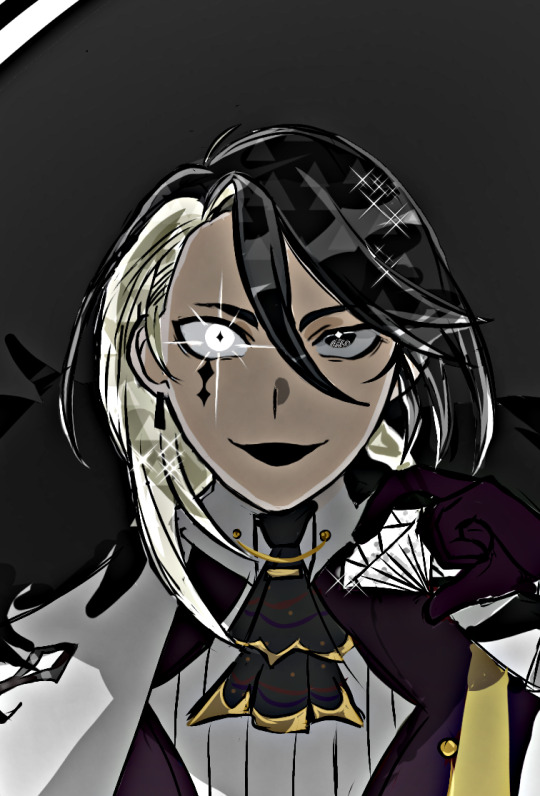
In the IPC, Bort is not considered a being of his own with freedom and rights, but rather as an extension of Diamond's power—That said, despite being part of the IPC, they are not exactly one of the ten stonehearts and occupy some of the roles of Diamond.
(Click on the image for better quality)
When Diamond decided to remove all his impurities and imperfections in the form of a shining meteor, a being made of stone was created from the collision of that meteor against the ground.
Bort is a strict person, known for always keeping a somewhat dull smile on their face and correcting their department's mistakes. They are normally reserved, however a person with great aptitude in social matters. Despite being considered obedient and intellectual by their peers, Bort actually has a hard time understanding their own feelings and negligence them, preferring to follow orders than worry about this silly things.
Before being completely under Diamond's command, Bort was responsible for missions on very dangerous planets and ended up developing an obsession with battles and now is very angry at not being able fight as much as they did in the past.
"They are extremely smart and pleasant to talk to, but it is a dangerous trait... They always preferred satisfying their intellectual curiosity, over using his skills for the benefit of others"
- Unknown Senior Manager
. . .
VOICELINES
First meeting
"Bort" of the illustrious IPC's Strategic Investment Department— or, as those closest to me refer to me, Ballas—is at your service. To whom do I owe the honor, my dear nameless companion?
Greeting
Straighten your posture, lift your head and leave behind any trace of laziness before greeting someone. Never underestimate the importance of body language—as a Trailblazer, you will certainly need it.
Parting
In a formal meeting, time is meticulously measured, from hours to milliseconds. I usually don't mind it... However, I'm your presence i feel like time is… too fast. Sigh… What a pity.
About Self: True Desire
What do I truly desire? Uh, well... that's rather a silly question. Anything that Diamond wants too. If he's happy, i'll be more than satisfied. :)
About Self: Old Self
I no longer recall what I was like, but that's only natural. If i expect a lot from others, I must hold myself to the same stantard, even if it means sacrificing who I truly am.
Chat: Food
I have often heard about the benefits of food, not only for bodily functioning but also for overall well-being. Personally, I have never savored the pleasure of eating, and in my form it's unlikely that I ever will... So, I kindly ask you to accept this money and buy some food. Even though I won't enjoy it with you, I'll feel happier seeing you healthier.
Hobbies
Even though I don't need it, I take great pleasure in sleeping. It makes all the worries of the world disappear for a brief and comfortable moment
Annoyances
The intense feeling of failure, especially when others have high expectations of you, can be incredibly... infuriating. I feel powerful under the pressure they put on me, but I can't help but feel an inexplicable pain in my chest...
. . .
Ok, it ended up being a bit big because I ended up getting excited hshqhdhwhdha
There are still many things left to say about them, such as their backstory and their relationship with other people like Aventurine, Topaz, etc... But that's for another post
I ended up changing a few things slightly from the little intro I made previously so... Here are some curiosities
They are genderless
They can't eat, drink, have no organs but can sleep for lore reasons
Sometimes they give off a weird vibe to others so no one messes with them
They are dependent on Diamond
They like fish and stars!
(and also, the phrase I left below the cut comes from houseki no kuni)
#honkai star rail#honkai sr#honkai star rail oc#bort#diamond#diamond hsr#ten stonehearts#ipc#ipc oc#strategic investment department#hsr aventurine#hsr topaz#hsr jade#hsr opal#hsr ipc#hsr pearl#hsr obsidian#hsr#hsr oc
64 notes
·
View notes
Text
CNN 5/6/2025
Inside the multi-day meltdown at Newark airport
By Pete Muntean, Rene Marsh, Aaron Cooper and Amanda Musa, CNN
Updated: 7:05 PM EDT, Tue May 6, 2025
Source: CNN
Air traffic controllers in Philadelphia were guiding planes to Newark Liberty International Airport in New Jersey last week when communications suddenly crashed.
“Approach, are you there?” one pilot asked the controller.
The controller stopped responding.
United Airlines Flight 1951, flying from New Orleans to the Newark hub, tried to radio the controller five times before finally getting a response.
“United 1951, how do you hear me?” the controller asks, according to air traffic control conversations recorded by the website LiveATC.net.
“I got you loud and clear, United 1951,” the pilot responds.
For at least 90 seconds, controllers lost the ability to see planes on radar scopes and for a minute they could not communicate with pilots, source with knowledge of the situation tells CNN. (Transportation Secretary Sean Duffy said Monday air traffic controllers lost contact for 30 seconds.)
The April 28 outage impacted information coming from radars located at a Federal Aviation Administration facility in Westbury, New York, where the air traffic controllers used to manage flights heading to Newark. Control over the airspace was transferred to Philadelphia in July. The radars are now operated using a remote line the source described as “a long extension cord.”
The outage was the result ofa failure of that copper wiring that transmits information to Newark approach control, a separate source tells CNN. “There was some infrastructure breakdown related to how the information is relayed right now.”
Similar outages happened twice before, the first source notes.
Those earlier incidents were reported to the FAA safety reporting system and “adjustments were made,” which kept the systems stable until the most recent loss, they say.
The technology interruption ultimately cascaded into a weeklong meltdown at Newark, one of the nation’s largest airports. It resulted in delays and cancellations for thousands of customers, controllers taking leave for trauma, and renewed scrutiny on an outdated air traffic control system.
The chaos also highlighted the challenges of an understaffed system, the latest incident in an already turbulent year for aviation that included a deadly collision between a passenger jet and US army helicopter.
‘I don’t know where you are’
Controllers at Philadelphia Terminal Radar Approach Control, which coordinates planes arriving at Newark, temporarily lost access to the systems that help them guide the aircraft, meaning they were unable to see, hear or talk to the planes, officials said. Controllers lost primary communication, and the backup line did not immediately take over, Transportation Secretary Sean Duffy told Fox News Monday. Audio obtained by CNN reveals the tense moments at the Philadelphia control center.
“United (flight) 674, radar contact lost,” a controller tells a pilot flying to Newark from Charleston, South Carolina. “We lost our radar so just stay on the arrival and maintain 6000 (feet).”
The same flight, traveling at hundreds of miles an hour, returns to the radar but does not show up in an accurate position.
The connectivity between Federal Aviation Administration radar and the frequencies that air traffic controllers use to manage planes at the airport “completely failed,” a source with knowledge of the situation said. Without radar, another approach controller told the pilot of a smaller aircraft to rely on towers for clearance.
“Do I have bravo clearance?” the pilot asks. Bravo clearance is permission to enter into the airspace surrounding a larger airport, like Newark Liberty.
“No, you do not have a bravo clearance. We lost our radar and it’s not working correctly. Radar service terminates… If you want a bravo clearance, you can just call the tower when you get closer,” the controller said.
Colin Scoggins, a former air traffic controller and retired military specialist at the FAA, told CNN that losing both radar and communications on the job can be a scary experience.
“If you cannot talk to a pilot, then you’re really in trouble,” he said. “I would find it very traumatic.”
“You’re sitting there watching the situation unfold, kind of like on 911, you see situations unfold that you have no control over. And when you’re a controller, you want to be in control. When you take that away, it can be very traumatic,” Scoggins added.
“Imagine driving down the highway in traffic and someone puts blindfold over eyes and tells you to keep driving and when you come back from driving dark you have to figure out what to do next,” a source told CNN.
About 15 to 20 flights were being controlled by Newark Liberty approach controllers when communication and radar went down on April 28, according to an analysis by flight tracking site Flightradar24.
The number is based on the altitude of aircraft bound for and departing Newark and audio from the approach radio frequency, Ian Petchenik, the director of communications for the site, tells CNN.
No crashes occurred, but at least five FAA employees took 45 days of trauma leave afterward.
Aviation analyst Miles O’Brien told CNN that the controllers did what they could with a potentially dangerous situation.
“I think, as I always say, that the controllers, the individuals who run this system daily, perform quiet heroic acts, in spite of a system that is built to set them up for failure. I believe in those people doing their job, but there’s only so much stress they can take,” O’Brien said.
The incident has compounded existing staffing shortages and equipment failures and contributed to frustrating hourslong delays for passengers, Duffy told Fox News.
A CNN analysis of FAA airspace advisories shows at least 14 straight days of FAA-imposed delays for flights to or from Newark.
Airlines canceled 160 flights to or from Newark Liberty on Monday, with more than 400 flights delayed, according to the flight tracking website FlightAware. The airport’s cancelations accounted for more than a quarter of all flight cancelations nationwide on Monday.
And on Tuesday, the FAA announced a ground delay for inbound flights at the airport, causing further delays.
The FAA has indicated it expects delays at the airport to continue due to the staffing shortages. Duffy noted that authorities will have to slow traffic at Newark before restoring full capacity.
A stormy weather pattern stuck in place in the Northeast is further complicating efforts to keep air traffic moving through the airport in northern New Jersey, where low clouds and rain are expected throughout the week.
A traumatic event
The current shortage of air traffic controllers is nearly the worst in 30 years, said the National Air Traffic Controllers Association, which represents 10,800 certified air traffic controllers across the country.
The control facility responsible for traffic at Newark has been “chronically understaffed for years,” United Airlines CEO Scott Kirby said in a Friday message addressing the delays. He also said the shortage was compounded by over 20% of FAA controllers who “walked off the job” at Newark Airport last week.
The controllers’ union said workers did not “walk off the job.”
“The controllers didn’t just walk off the job, they were traumatized, their equipment failed,” the source with knowledge of the situation said. “It’s written in the regulations if they experience a traumatic event — they can take time off to go see psychiatrist. The people working that day did that.”
But filling those empty positions is not an issue that can be sorted overnight, according to the FAA.
New air traffic control applicants must be younger than 31 years old so they can work the mandatory 20 or 25 years needed to qualify for pensions before their mandatory retirement age of 56, according to the FAA. Physical stamina and mental sharpness are critical to performing the job.
And air traffic controllers can’t simply fill in at a different airport without extensive preparation.
“When you first start at an air traffic control facility, you have to do a lot of memorization,” said Michael McCormick, a professor and air traffic management coordinator at Embry-Riddle Aeronautical University.
“Most air traffic controllers don’t just monitor one airport. Many keep tabs on dozens of other regional airports to make sure planes keep a safe distance from each other.”
The FAA acknowledged a wave of new controllers won’t come overnight.
“While we cannot quickly replace (the controllers) due to this highly specialized profession, we continue to train controllers who will eventually be assigned to this busy airspace,” the FAA said.
A total of 885 Newark flights have been canceled since the April 28 air traffic control meltdown, according to an analysis by FlightRadar24, which notes that not all of the canceled flights were related to air traffic control issues.
United Airlines has preemptively canceled 35 round trip flights to or from Newark – meaning 70 individual flights – per day.
Airline analytics firm Cirium says the Newark delays have been spiking significantly since April 26, days before the control equipment outage at the Philadelphia air control site.
“Since April 26, on-time departures have fallen to 63%, which is far below industry norms,” said Cirium’s Mike Arnot. “Prior to that date, an average of four flights per day were cancelled in April.”
A frail system in place
Flights arriving to Newark were experiencing an average delay of 4 hours as of Tuesday evening, according to the FAA.
One passenger, Geraldine Wallace, told CNN Sunday she was anxious about the staffing shortage after her flight was delayed for almost three hours.
Mark Wallace, her partner, told CNN he was more worried about equipment failures.
“As concerning as the manpower issue is, according to news reports, the equipment that they’re using out of Philadelphia is antiquated,” he said.
Flexibility waivers are now available to impacted United Airlines customers with flights booked on or before May 4 and originally scheduled to fly from May 6 to 17, United said in an announcement Tuesday.
A separate waiver is available to customers with tickets purchased on or before April 29 for trips scheduled between May 1 and 5, the airline said.
The Department of Transportation will announce a plan Thursday to transform the air traffic control system, remodeling an outdated system that contributed to days of delays at Newark, Duffy, the transportation secretary, told Fox News on Monday.
The system used to manage air traffic at Newark is “incredibly old,” Duffy said.
“We use floppy disks. We use copper wires,” he said Friday. “The system that we’re using is not effective to control the traffic that we have in the airspace today.”
Duffy has since pledged to implement a new, “state-of-the-art” system at air traffic control facilities across the country that would be the “envy of the world” – but said it might take three to four years.
“We are going to radically transform the way air traffic control looks,” Duffy told Fox News’ Laura Ingraham.
President Donald Trump has “bought into the plan,” he said.
Peter Goelz, former managing director of the National Transportation Safety Board, said he wasn’t sure he’d want to fly out of Newark for the next 10 days.
“We have a very safe system, but anytime it’s stressed like this, where you have controllers who are feeling under maximum pressure, it impacts safety – and people have a right to be concerned,” Goelz told CNN.
“You cannot expect humans to function at their highest level for sustained periods of time with this kind of pressure on them.”
This story has been updated with additional information.
See Full Web Article
Go to the full CNN experience
© 2025 Cable News Network. A Warner Bros. Discovery Company. All Rights Reserved.
Terms of Use | Privacy Policy | Ad Choices | Do Not Sell or Share My Personal Information
--------

Dontcha feel just...so very safe?
9 notes
·
View notes
Text
A/n : ,you can clearly see who is my favourite character in haikyuu😭
Characters: this is a iwaizumi x reader fanfic . There are also some other characters
"My Queen"

Summary :Princess Y/N, trapped by royal duty, falls in forbidden love with her loyal attendant, Iwaizumi Hajime. When forced to marry another, they risk everything to escape the kingdom and build a life together. Through trials and sacrifice, they find freedom and a simple yet fulfilling love far from the palace's reach.
Warnings: Angst and emotional turmoil Power imbalance (royalty/servant dynamic),Controlling parental authority , mild violence (capture scene) , Elopement themes and Emotional intensity and vulnerability BUT HAPPY ENDING!!
Enjoy!! :)
*********************************************
The Kingdom of Solis was a golden paradise, its rolling fields kissed by the sun and its royal family revered by all. But within the grand palace walls, Princess Y/N lived a life that, while glittering on the surface, was nothing short of a gilded cage. Every word she spoke, every smile she offered, every step she took had been choreographed to perfection, a performance for her people, her court, and most of all, her father—King Alaric, whose belief in duty was as unyielding as iron.
Amidst the crushing weight of her responsibilities, the only light in Y/N’s life was Iwaizumi Hajime. He had grown up in the palace alongside her, the son of a knight who had fallen in service to the crown. Over time, Iwaizumi had risen to the role of her personal attendant. Their bond, forged in childhood, had only deepened with time, becoming something neither dared to name aloud. While the world saw a princess and her loyal servant, the truth was far more dangerous: they were in love.
It had started with fleeting glances and whispered words exchanged in the quiet corners of the palace. Then came the stolen moments in the hidden garden, where they could shed their titles and be simply Y/N and Hajime. He was her rock, the one who reminded her that she was more than a crown, more than the image her father had so carefully crafted. And she was his anchor, the one who saw past the armor he wore to the fiercely loyal, tender-hearted man beneath.
One such evening, as the sun dipped below the horizon, Y/N slipped away from the watchful eyes of her handmaidens and guards, making her way to their secret meeting place. The garden was bathed in the soft glow of moonlight, and there, beside the pond, stood Hajime. His broad shoulders were tense, his hands clenched at his sides, but when he saw her, his expression softened.
“You’re late,” he murmured, stepping toward her.
“I had to sit through another lecture about tomorrow’s ball,” she replied, letting out a frustrated sigh. “My father is determined to parade me before every eligible nobleman in the kingdom.”
His jaw tightened, and she could see the barely contained anger in his eyes. “The Duke of Raelvis is coming, isn’t he?”
“Yes,” she admitted, her voice dropping to a whisper. “My father is convinced he’s the perfect match.”
Hajime cursed under his breath, running a hand through his dark hair. “This has to stop, Y/N. I can’t stand by and watch them try to take you away from me.”
“And I won’t let them,” she said fiercely, stepping closer to him. “You’re the only one I want, Hajime. The only one I’ll ever want.”
His hands cupped her face, his touch rough but tender. “You don’t know what you’re saying. If your father finds out—”
“Let him find out,” she interrupted, her voice trembling with emotion. “I don’t care anymore. I’m tired of hiding, tired of pretending. I love you, Hajime. Isn’t that enough?”
His lips met hers in a kiss that was both desperate and tender, a collision of emotions too powerful to contain. She clung to him, pouring every ounce of her fear, longing, and defiance into the kiss. In that moment, there was no crown, no kingdom, no rules—only them.
When they finally pulled apart, their foreheads rested together, their breaths mingling.
“It’s not enough,” he said, his voice breaking. “Not when your father would destroy me to protect your reputation. I can’t let you throw away your future for me, Y/N.”
“You are my future,” she said, her voice trembling. “I don’t care about the crown or the kingdom. I care about you.”
But their fragile moment of solace was shattered by a voice that cut through the night like a blade.
“Y/N.”
They turned to see King Alaric standing at the edge of the garden, his face a mask of fury.
“What is the meaning of this?” he demanded, his gaze flicking between his daughter and the man still standing too close to her.
“Father, I—”
“Silence!” he barked, his voice echoing through the garden. His eyes settled on Iwaizumi, cold and unyielding. “You dare to overstep your place, boy? Do you think you’re worthy of her?”
“This isn’t his fault,” Y/N said, stepping in front of Hajime as though to shield him from her father’s wrath. “I asked him to meet me.”
“And yet he came,” the king spat. “This ends now, Y/N. You will return to your chambers and prepare for tomorrow’s ball. As for him…” He turned to Hajime, his expression darkening. “If I so much as catch you looking at her again, I’ll have you banished—or worse.”
“Don’t you dare!” Y/N shouted, her voice cracking. “You can’t control my heart, Father. I love him, and there’s nothing you can do to change that.”
Her words hung in the air, heavy and defiant. But the king’s laughter was cold and bitter.
“Love?” he sneered. “Do you think love has any place in a crown? You will marry the Duke of Raelvis, and you will forget about this foolishness. That is an order.”
With that, he turned and stormed away, leaving them alone once more.
Y/N collapsed into Hajime’s arms, her tears soaking into his uniform. “What are we going to do?” she whispered.
“We’ll figure it out,” he said, though his voice was laced with doubt. “I won’t let him take you from me.”
That night, as they held each other under the moonlight, they made a pact: if the king forced her into a marriage, they would run.
The days that followed were a blur of tension and stolen moments. The ball came and went, with the Duke of Raelvis declaring his intention to wed the princess. The king was overjoyed, but Y/N’s heart was breaking.
On the eve of her betrothal announcement, she met Hajime in the garden one last time.
“Are you ready?” he asked, his voice heavy with emotion.
“Yes,” she said, though her heart was pounding. “Let’s leave tonight.”
But as they prepared to flee, the king’s guards found them. Hajime fought valiantly, his love for Y/N fueling his strength, but they were outnumbered.
Y/N was dragged back to the palace, where her father delivered his final ultimatum: marry the duke, or watch Hajime be executed for treason.
In the end, it was Hajime who made the choice.
“Do it,” he told her, his voice breaking as tears streamed down his face. “Marry him. Live. I’ll survive this, somehow. Just don’t let them take your life away too.”
And so, with her heart in pieces, Y/N stood before the court the next day and accepted the duke’s proposal.
But in the quiet corners of her heart, she knew her love for Hajime would never fade. And as she glanced at him standing silently among the guards, their eyes met, and she saw the promise in his gaze:
This wasn’t the end.
Their story was far from over.
---
Y/N stood in the grand hall, her fingers trembling as she clutched the edge of her gown. The court erupted into applause as the Duke of Raelvis took her hand, his arrogant smile stretched wide as though he’d won a prize. The weight of the crown she would someday wear felt heavier than ever. Her father’s approving nod from his gilded throne cut through her like a blade, a reminder that duty had won, that her love had been sacrificed on the altar of expectation.
But she couldn’t look at the duke, not when she knew Iwaizumi was standing among the guards, silently watching her. She didn’t dare meet his gaze—not yet. To see him now, to see his pain, might break her resolve entirely.
The feast continued, a blur of clinking goblets and hollow congratulations. Y/N moved like a puppet, nodding and smiling at all the right moments while her heart ached for the man she could never truly have.
Hours later, long after the court had gone to bed and the candles had burned low, she slipped away to the servants’ quarters. Her heart raced as she reached the door to Hajime’s room. She hesitated for a moment, her fingers hovering over the latch, before pushing it open.
He was seated on the edge of his bed, his hands clasped tightly together, his head bowed. When he looked up and saw her, his eyes softened, though they were heavy with exhaustion and sorrow.
“You shouldn’t be here,” he said quietly, rising to his feet.
“And yet, here I am,” she replied, stepping inside and closing the door behind her. “I couldn’t end the night like this, Hajime. Not without saying goodbye properly.”
His jaw tightened, and he shook his head. “Don’t do this to me, Y/N. Don’t make this harder than it already is.”
She crossed the room in a rush, her hands reaching for his. “I can’t let this be the end,” she whispered, her voice cracking. “I can’t spend the rest of my life pretending to love a man I don’t, while the one I truly love fades into the background.”
“You don’t have a choice,” he said, his voice raw with pain. “If you defy your father again, he’ll destroy us both. And I can’t… I can’t let that happen to you.”
“I’d rather risk it all than live a life without you,” she said fiercely, her hands gripping his. “There has to be another way, Hajime. Please. Tell me we can find a way.”
For a moment, he said nothing. Then he sighed, his shoulders slumping as though the weight of the world was pressing down on him. “There’s one chance,” he said slowly. “But it’s dangerous.”
“Tell me,” she urged.
“I still have friends among the knights, people who are loyal to me, not the crown,” he said. “If we leave the kingdom tonight, we can disappear. We’ll have to leave everything behind—your title, your family, everything.”
Her heart twisted at the thought of abandoning the only life she’d ever known. But when she looked into his eyes, she saw a future worth fighting for. “I’ll do it,” she said without hesitation. “I’ll leave it all behind for you.”
---
The next few hours passed in a blur. Hajime gathered what little he could carry—a cloak, a sword, and enough provisions to last them a few days. Y/N dressed in the plainest clothes she could find, a simple cloak pulled over her head to conceal her face.
As the first rays of dawn broke over the horizon, they slipped out of the palace through a hidden passage Hajime had used countless times during his training as a knight. The city was quiet, the streets empty save for the occasional patrol of guards. Hajime led her through the labyrinthine alleys with practiced ease, his hand never leaving hers.
When they finally reached the edge of the city, Y/N turned back for one last look at the palace. It loomed in the distance, a golden silhouette against the rising sun. Her chest tightened, but she knew there was no turning back now.
“Are you sure about this?” Hajime asked, his voice soft but steady.
She looked up at him, her heart swelling with love and determination. “I’ve never been more sure of anything in my life.”
---
The weeks that followed were grueling. They traveled by foot, avoiding towns and major roads, relying on Hajime’s skills as a former knight to keep them safe. Y/N, who had never known hardship, found herself learning to adapt to a life without luxury. Her feet blistered, her muscles ached, and she missed the comforts of home—but not once did she regret her decision.
Hajime, ever patient and protective, did everything he could to make the journey easier for her. He built fires to keep her warm at night, hunted for food when their supplies ran low, and held her close when the fear of being caught threatened to overwhelm her.
One night, as they sat by the fire under a blanket of stars, Y/N turned to him. “Do you ever regret this?” she asked, her voice barely above a whisper.
He looked at her, his eyes filled with unwavering devotion. “Never,” he said. “As long as I have you, I have everything I need.”
Tears welled in her eyes, and she leaned in to kiss him, her heart full despite the uncertainty of their future.
---
Months later, they settled in a small village nestled in the mountains, far from the reach of the crown. Hajime found work as a blacksmith, his strong hands perfect for the trade, while Y/N helped tend the village gardens and care for the children. It was a simple life, nothing like the one she had known, but it was theirs.
Though they missed their home and the people they had left behind, they found solace in each other. Every glance, every touch, every whispered word of love reminded them why they had chosen this path. They had given up everything for the chance to be together, and it was a decision they would make again and again.
One evening, as they stood on the hill overlooking their village, Hajime wrapped his arms around her from behind, resting his chin on her shoulder.
“Do you ever think about what we left behind?” he asked softly.
“Sometimes,” she admitted, leaning into him. “But then I think about what we’ve gained. And I wouldn’t trade this for anything.”
He smiled, pressing a kiss to her temple. “You’re my queen, Y/N. Always.”
“And you’re my everything, Hajime,” she replied, turning to kiss him. “Always.”
As the sun set behind the mountains, painting the sky in hues of gold and crimson, they stood together, their hearts full, knowing that no matter what challenges lay ahead, they would face them as one.
#haikyuu x reader#anime fanfic#haikyuu iwaizumi#iwaizumi x reader#haikyu fluff#haikyuu oikawa#haikyuu#hq iwaizumi#iwaizumi hajime#spotify
16 notes
·
View notes
Text
Notes from Off Track (A Thimless One)
Thim is not there (he’s on a plane) and can hear them talking but he can’t say anything in response. They enjoyed this. 🎧
James is hangry and pissed off - Alex told him he was an adult so needed to sort himself out and get food. Was meant to order room service, but no one was answering his calls to order, for 32 whole minutes then they both went on a rant about it, but food should arrive part way through the recording 🍛
He’s in Palm Springs doing an event for CSN Collision Centres, come from Baltimore to look at some safety stuff (James has done a CSN commercial and Alex told him he didn’t like his tyre screech, but it’s apparently Marvin Kirchhoff drove in that section)🧯
Alex likes his new livery, is in Florida - Alex said Christian was ill when they were filming some of the promo stuff (he seems to talk about him fondly) and now he has passed it on to Alex who also sounds sick (he had fevers, sweats and night terrors apparently). I refuse to even entertain the idea of them getting sick any other way. 😷
Alex flew to Miami on Saturday, played golf, had dinner - then on Sunday he went to Palm Meadows training centre to see Castle Run who was sick in November and he has been ill since then so has been kept warm in Florida, and he has returned to his pre-illness abilities 🐎
Went to Sebring (via Cracker Barrel - his new sponsor). Team flew on charter flight from Indy to the airport near Sebring, but it was not very dependable, and their plane was extremely delayed. So they went to play golf again ⛳️
The Sebring test - he was Monday PM and Tuesday AM - so watched the Monday morning session, but it was split up randomly rather than each team always having one car on track (they both think that it was silly idea) 🙄
Some good stuff, some disappointing stuff - ECR are making some of their own stuff this off season, and so that has repercussions. Performance isn’t overall WOW, but he’s still excited to see what the car is like. Said the team’s approach is very different in terms of street course philosophy in comparison to McLaren. A lot of new systems, new people, big upgrades - meant that Alex couldn’t do a lap for the first hour because they were having fuel pressure problems ⛽︎
Fuel flow sensors on the cars this year - haven’t run this on track yet, but it wasn’t that - but with 2 hours to go he hadn’t done any laps (Scott Dixon also hadn’t because of an engine install issue) - only out/ins - found a solution to do some laps with 3/4-1 full tank but they did identify some of the issues and changed everything overnight🕵🏼
Car was fixed for Tuesday and it went a lot better - and he got through some of the stuff they wanted to even if they weren’t the fastest, and he was pretty happy with some of it - then Christian had a hybrid issue in the afternoon 🫠
“I’m gonna be honest with you, it was about as bad a test as a team could have” - this was meant to be the best pre-season tests the team has hand but it ended up… not being. He still seems really positive at being part of a team that “pivot’s quickly” and makes quick changes, so it’s not all bad. He’s realistic but he seems excited to be involved and to see them get good results 🥳
James asked who he thinks is looking good - according to Alex, the 12 (Will), the 10 (Alex), the 26 (Colton), the 9 (Scott), Pato (he was strong and fast, but Alex doesn’t know about the deg). MSR cars looked good because of the technical alliance with CGR - the other people who were fast never backed it up on the second day (Conor, SRR, Dev) - he did say Callum was very good and they were strong in their test 🥰
There’s going to be a new tyre but they didn’t test it 🛞
They both watched the Daytona 500 (Alex, the last 70 laps) - said the end was anti-climatic and the crashes ruin stuff 5️⃣0️⃣0️⃣
8 notes
·
View notes
Text
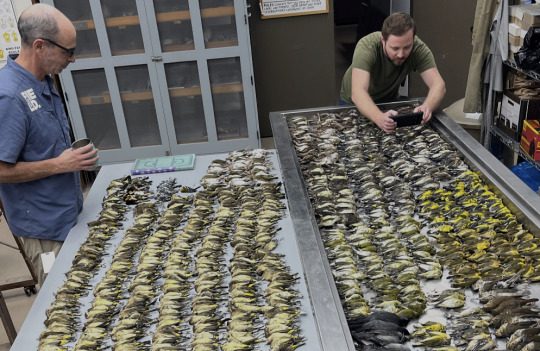
Excerpt from this press release from the Center for Biological Diversity:
The Center for Biological Diversity and 29 other bird and wildlife conservation organizations from 24 states filed a legal petition today asking the U.S. Fish and Wildlife Service to establish a permitting process for commercial buildings to protect birds from deadly window collisions.
Today’s petition proposes a permitting process under the Migratory Bird Treaty Act that would require building owners to use proven measures to reduce collisions, such as films, curtains or others means that make glass visible to birds.
According to recent studies, buildings in the United States kill more than 1 billion birds each year. This problem has contributed to a roughly 30% decline in birds since 1970 — or an estimated 3 billion fewer birds gracing the skies in North America.
“The Fish and Wildlife Service can’t keep letting buildings kill vast numbers of birds every year when there are known solutions to this tragic problem,” said Tara Zuardo, a senior advocate at the Center. “Migrating birds are crashing into walls of glass that leave them broken and dying, and federal officials have a legal duty to push for basic preventative steps. As bird populations dwindle, this threat affects every American in every state, and it needs to be addressed.”
In January 2021 the Service finalized a rule that upended decades of enforcement under the Migratory Bird Treaty Act. This unlawful reinterpretation failed to prohibit the foreseeable killing of migratory birds. In response to successful litigation by the Center and allies, the Service in 2021 revoked this rule and promised to issue regulations to address infrastructure known to cause bird deaths.
But in December 2023 the agency withdrew much-needed draft migratory bird protection rules, claiming that it requires an indefinite amount of time to pursue the rulemaking and left millions of birds vulnerable to building and window collisions.
Today’s petition notes that the Service admits that building collisions are one of the greatest threats to America’s migratory birds. These collisions are driving declines in warblers, sparrows and many other birds, including a number of sensitive species. That means the conditions leading to these collisions require regulation under the Migratory Bird Treaty Act. The Service already administers a permitting process to reduce harm to bald and golden eagles, so it could also do so for migratory birds.
#birds#bird collision with buildings#migrating birds#Migratory Bird Treaty Act#migratory bird protection rules#US Fish and Wildlife Service
12 notes
·
View notes
Text
Quarterly Fic Recs 2023 #3
Hello! I can't believe how quickly we've reached the third list of the year! I wasn't able to read as much as I wanted, but I hope you all enjoy these wonderful fics <3


Namjoon
baby fever @95rkives
summary: what was supposedly a peaceful morning stroll in the park, an unexpected encounter triggers namjoon’s intense desire for a baby, turning him into an adorable, baby fever-filled mess.
drunk in love @joon4eva
summary: you and whiskey are never a good combination. or: you’ve been in love with your best friend for years and you might tell him about it while drunk.

Jimin
menace @eoieopda
summary: Your shithead brother, Seokjin, is throwing his annual Valentine’s Day party. You didn’t want to go in the first place - and now his shithead friend, Jimin, is responsible for getting you there.
all mine @souryoong
summary: your new boyfriend can’t make you finish, but your ex boyfriend sure can.
thank you for your service @jiminniethemarshmallow
summary: As a servant of your kingdom, all Jimin wants to do is please you and service you in any way that he can.

Taehyung
high tide @kookslastbutton
summary: Due to Taehyung’s job as a cruise ship Captain, you are constantly miles away from each other. Weekly phonecalls help and this one gets a little nasty and a lot sweet.

Jungkook
something borrowed @alphabetboyluvr
mafia au
chained to you @hisunshiine
idol au
into the wild @bonny-kookoo
summary: The wolf pretending to be the grandmother, just to later swallow the poor red riding hood whole- is he attempting to gain your trust as well just to feast on your flesh later, once he gets hungry for a meal?
seven days @kithtaehyung
summary: you dump yet another guy that wasn’t up to your “ten day standards,” which leaves your cocky ass, very off-limits roommate to tease your single status yet again. but the teasing is always expected. what’s not expected, is the bet that you make without thinking. the bet that even though you give ten days, he wouldn’t even last seven.
and my man, thank you to my man @darklingjeon
dealer au
because, i love you ch. 12 @readyplayerhobi
summary: According to society, Jeon Jungkook should not be with you. He should be with a younger, hotter and thinner girl instead of wasting his time on you. It’s a good thing Jungkook doesn’t care what society thinks then.
things you don't know @btsgotjams27
summary: it’s been seven years since you last saw the boy that broke your heart. after moving back home, you try everything you can to avoid seeing him around town, but destiny has a wicked way of doing the opposite.

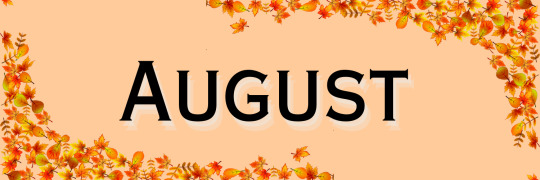

Yoongi
heartache @sailoryooons
summary: Unresolved feelings lead to nothing but heartache when you run into Yoongi at a wedding five years after breaking up. Especially when you realize that despite Yoongi have feelings for you, there is still another woman on his arm.
right here ^
summary: You’re tired of the revolving door of boys in your life. Yoongi is tired of watching you nurse feelings in the quiet of your apartment.

Taehyung
backstage @jeonqkooks
summary: what’s the best way to release energy for someone with an oral fixation?
champagne problems @still-with-koo
summary: you turn down taehyung’s very public marriage proposal. inspired by champagne problems by taylor swift.

Jungkook
6:42 a.m. @bangtanintotheroom
summary: Jungkook is ready to kick off a new day of loving you.

OT7/Multiple Members
cosmic collision @gimmethatagustd
summary: A responsible weedman, Yoongi always tests out new marijuana strains before selling them to his customers. When his supplier offers him a new strain, Cosmic Collision, Yoongi is eager to try it. What he doesn’t expect is the alien that comes with it.


Seokjin
the one with seokjin and without complaints @eoieopda
summary: you don’t want to arrive dateless to a wedding your ex is also attending. enter friend and local hero, kim seokjin.
musical chairs @ugh-yoongi
rival teachers au
lucky ^
things you said when you were drunk
view @noteguk
summary: in which seokjin likes to show people what is his.
sugar sweet @ditttiii
summary: Jin loves sweet things. Jin loves you. add it all together, stir the mixture up, and ta-da! There he has his dessert! Enjoy ♡ Or alternatively where Jin basically uses you as his damn plate and loves every second of it!
wash 'n dry @seokoloqy
summary: The one where Seokjin is the cute RA who catches you doing laundry at 1 AM and you both have time to kill.
thunder @/ppersonna
summary: you allow your best friend Jin to take you backpacking once per year. apparently, this year’s outing would be the wettest yet.

Yoongi
angel @/sailoryooons
summary: Yoongi never meant to keep coming back. You never meant to become Yoongi’s favorite. Being Min Yoongi’s favorite has dire consequences.
carnival of terror @theharrowing
summary: The carnival is in town, and it is unlike anything you have ever experienced. Will you make it out alive?
crescendo @/ugh-yoongi
established relationship
loose lips ^
friends to lovers
baby maker @shadowkoo
summary: You and Yoongi have been relishing the comfort of your newly married life, savoring each moment together. However, there’s an additional want tugging at your heartstrings – the thought of becoming a mother. That’s right, you want a baby. Yoongi isn’t sure if he’s ready for the journey of bringing a baby into your lives. But he’ll agree to anything that makes you happy, and if it’s a baby you want, it’s a baby you’ll get.
on your period @7ndipity
summary: Yoongi looks after you on your period
don't come yet @jl-micasea-fics
established relationship
night short #25 @euphoricfilter
make up sex

Hoseok
sensuous @delugguk
hot emo hobi @minisugakoobies
i'm yours @yoongiphoria
If you're making a mistake, it's bound to be your favorite one.
bad things come in three @hyungieyoongi
established relationship
hoseok drabble @here4kpopfics
brother's best friend
intoxicated @peachypinkygloss
summary: Drugs make everything better. Even sex.
bones @floralseokjin
summary: you were broken from a past relationship, and Hoseok wanted to fix you, but what price was he willing to pay? Would he end up worse off, or would you realise in time, that your best friend was the one…?

Namjoon
signed, sealed, delivered @fresh-outta-jams
summary: You’re in college when your soulmate tattoo finally shows up: an address. Sending a letter couldn’t hurt, right?
the rich man's crochet club @kpopfanfictrash
summary: When they were freshmen in college, Namjoon began a club with his six closest friends. The one thing they all had in common? V i r g i n s as fuck. Obviously, they couldn’t call the club the Virgins Club and so, the Rich Man’s Crochet Club was born. Until time passes and Namjoon is the only one left. Now, the Club has one, final mission: to get Namjoon laid.
not so dinner date @bangtaninborderland
idol au
breakfast @hamsterclaw
summary: Turns out your big dumb goon can make eggs.
everything slow @hobidreams
summary: your boyfriend catches you missing him with your hand between your legs, his name a moan on your tongue. it looks like you need a little help…
tonight ^
how will you spend the night with your man?
love language @rmnamjoons
summary: Exactly one year before one meets their soulmate, their love’s first words spoken to them appear as a tattoo on their wrist. When Namjoon’s tattoo appears, however, it’s not of words, but of the most beautiful set of eyes he’s ever seen.
there was a bug @/kimnjss
summary: you and joon have been best friends for years, unexpectedly his feelings start to grow more than platonic. deciding to keep this to him, joon stays as your best friend and roommate. things are going fine, until one night you’re forced to sleep in his room.
out of my league @ppersonna
summary: Kim Namjoon was never supposed to find out about your years-long hopeless crush on him. And he most definitely was not supposed to find out about it in front of all your coworkers in a company-wide meeting.
will you let me? @bratkook
summary: Namjoon wants nothing more than to see you stuffed full of his cum, and as his mind starts to wander with thoughts of the future, he has to know if you’d let him.
the package thief @/blog-name-idk
summary: You have a new neighbor who is incredibly attractive. Unfortunately, he seems to hate you for no discernable reason at all. Does he think that just because he’s hot, he can get away with being an asshole?

#i truly wish i had read more#but life got rocky for a moment#i promise i don't purposely exclude members#i read what's on my dash mostly#and i've been mostly reading drabbles bc i can't focus for very long#i hope you enjoy these fic recs <3
56 notes
·
View notes
Note
[WINDOW SHOPPING]
Assimilating into Ohkema after decades of traveling across the Amphorean wasteland was painful enough. He remembers the worst parts of it. Feeling cramped and out of place on the streets where people would shrink away from his presence and even more odd in his own bed, soft pillows and the sweet scent of a perfumed bath lingering in the air.
He’d slept on the floor of his balcony for months.
This is worse, is the thought lingering behind the permanent grimace. The Empyrean shopping district is packed almost shoulder to shoulder in most places, and Mydei tenses every time someone runs into him and falls, eyeing him with strange mixtures of appreciation and fear.
The hotel won’t let him stay unless he conforms to their odd wardrobe requests. No shirt, no shoes, no service, but the Kremnoan has been wrongly judged enough in his life to wonder if there aren’t other motives behind the refusal. Especially because he witnessed several people headed to the pool area wearing less than he is, but his pride kept him from pointing it out.
He regrets it, now, the crowded streets adding to claustrophobia in a way that makes him want to find the nearest training grounds to sweat out the worst of the violent energy sweeping through him. If they even have that sort of thing here. As he rounds a corner in search of air, he knocks into another person with a punched-out breathe of agitation. This person doesn’t falter, doesn’t stagger, so Mydei rights himself and pushes the man further away. “Back off.” He snarls, sour mood having more to do with his surroundings than the unfortunate person in front of him. He realizes it, and wipes the aggression from his features as best he can. “I mean, sorry, for…hitting you. There are too many people in this noisy town. I’ll be out of your space in a second.” Despite this, he makes no effort to move, leaning on the wall opposite of the other, arms crossed as he closes his eyes to block out the people rushing by them. “You don’t look like you fit here either.”
To say he was overwhelmed was an understatement.
Having decided to leave the safety of his hotel room to run some errands that desperately needed his attention due to the short notice his superiors gave him for this impromptu 'vacation' that he didn't sign up for. He was hoping that he could avoid the shopping district for a little while longer, but unfortunately, as he looks around at the bustling crowds that closely surrounded him, feeling the constant brush of shoulders that made him feel like he is suffocating. He needed supplies.
He eyes drift down to his jade abacus to look at the list he created, trying to ground himself a little before putting it away, and begins to carefully navigate his way through the crowd. Moze tries to sidestep the majority of people, but his shoulders repeatedly get checked by the uncaring masses. Being too lost in his own thoughts, he fails to notice the approaching figure until it is too late. Moze let's out a small grunt as they collide with one another. Eyes darting up at the unexpected collision before he is shoved and growled at by the blond stranger.
Moze's body tenses at the hostility, and doesn't relax even when the stranger apologizes and moves out of his space. Intensely, he stares, watching the others movements as they lean against the wall. Gradually, that apprehension lessens and lessens until he all but slumps against the wall behind him. Back firmly planted against it while leaning his head back as his exhaustion finally catches up with him. He hums in agreement in lieu of a vocal response to the statement posed as he closes his eyes.
Hoping to enjoy this moment of respite that he was granted.
#ghrevelation2025#𓄿𓌜 in character ⚡︎☾#Mydei || mydcimos#⚡︎☾ Thank you so much for the ask Ciri!#⚡︎☾ The bois. 🥺 I wanna give them hugs.
2 notes
·
View notes
Text

Climate change will reduce the number of satellites that can safely orbit in space
MIT aerospace engineers have found that greenhouse gas emissions are changing the environment of near-Earth space in ways that, over time, will reduce the number of satellites that can sustainably operate there.
In a study that will appear in Nature Sustainability, the researchers report that carbon dioxide and other greenhouse gases can cause the upper atmosphere to shrink. An atmospheric layer of special interest is the thermosphere, where the International Space Station and most satellites orbit today. When the thermosphere contracts, the decreasing density reduces atmospheric drag— a force that pulls old satellites and other debris down to altitudes where they will encounter air molecules and burn up.
Less drag therefore means extended lifetimes for space junk, which will litter sought-after regions for decades and increase the potential for collisions in orbit.
The team carried out simulations of how carbon emissions affect the upper atmosphere and orbital dynamics, in order to estimate the “satellite carrying capacity” of low-Earth orbit. These simulations predict that by the year 2100, the carrying capacity of the most popular regions could be reduced by 50-66 percent due to the effects of greenhouse gases.
“Our behavior with greenhouse gases here on Earth over the past 100 years is having an effect on how we operate satellites over the next 100 years,” says study author Richard Linares, associate professor in MIT’s Department of Aeronautics and Astronautics (AeroAstro).
“The upper atmosphere is in a fragile state as climate change disrupts the status quo,” adds lead author William Parker, a graduate student in AeroAstro. “At the same time, there’s been a massive increase in the number of satellites launched, especially for delivering broadband internet from space. If we don't manage this activity carefully and work to reduce our emissions, space could become too crowded, leading to more collisions and debris.”
The study includes co-author Matthew Brown of the University of Birmingham.
Sky fall
The thermosphere naturally contracts and expands every 11 years in response to the sun’s regular activity cycle. When the sun’s activity is low, the Earth receives less radiation, and its outermost atmosphere temporarily cools and contracts before expanding again during solar maximum.
In the 1990s, scientists wondered what response the thermosphere might have to greenhouse gases. Their preliminary modeling showed that, while the gases trap heat in the lower atmosphere, where we experience global warming and weather, the same gases radiate heat at much higher altitudes, effectively cooling the thermosphere. With this cooling, the researchers predicted that the thermosphere should shrink, reducing atmospheric density at high altitudes.
In the last decade, scientists have been able to measure changes in drag on satellites, which has provided some evidence that the thermosphere is contracting in response to something more than the sun’s natural, 11-year cycle.
“The sky is quite literally falling — just at a rate that’s on the scale of decades,” Parker says. “And we can see this by how the drag on our satellites is changing.”
The MIT team wondered how that response will affect the number of satellites that can safely operate in Earth’s orbit. Today, there are over 10,000 satellites drifting through low-Earth orbit, which describes the region of space up to1,200 miles, or 2,000 kilometers, from Earth's surface. These satellites deliver essential services, including internet, communications, navigation, weather forecasting, and banking. The satellite population has ballooned in recent years, requiring operators to perform regular collision-avoidance maneuvers to keep safe. Any collisions that do occur can generate debris that remains in orbit for decades or centuries, increasing the chance for follow-on collisions with satellites, both old and new.
“More satellites have been launched in the last five years than in the preceding 60 years combined,” Parker says. “One of key things we’re trying to understand is whether the path we’re on today is sustainable.”
Crowded shells
In their new study, the researchers simulated different greenhouse gas emissions scenarios over the next century to investigate impacts on atmospheric density and drag. For each “shell,” or altitude range of interest, they then modeled the orbital dynamics and the risk of satellite collisions based on the number of objects within the shell. They used this approach to identify each shell’s “carrying capacity” — a term that is typically used in studies of ecology to describe the number of individuals that an ecosystem can support.
“We’re taking that carrying capacity idea and translating it to this space sustainability problem, to understand how many satellites low-Earth orbit can sustain,” Parker explains.
The team compared several scenarios: one in which greenhouse gas concentrations remain at their level from the year 2000 and others where emissions change according to the Intergovernmental Panel on Climate Change (IPCC) Shared Socioeconomic Pathways (SSPs). They found that scenarios with continuing increases in emissions would lead to a significantly reduced carrying capacity throughout low-Earth orbit.
In particular, the team estimates that by the end of this century, the number of satellites safely accommodated within the altitudes of 200 and 1,000 kilometers could be reduced by 50 to 66 percent compared with a scenario in which emissions remain at year-2000 levels. If satellite capacity is exceeded, even in a local region, the researchers predict that the region will experience a “runaway instability,” or a cascade of collisions that would create so much debris that satellites could no longer safely operate there.
Their predictions forecast out to the year 2100, but the team says that certain shells in the atmosphere today are already crowding up with satellites, particularly from recent “megaconstellations” such as SpaceX’s Starlink, which comprises fleets of thousands of small internet satellites.
“The megaconstellation is a new trend, and we’re showing, because of climate change, we’re going to have a reduced capacity in orbit,” Linares says. “And in local regions, we’re close to approaching this capacity value today.”
“We rely on the atmosphere to clean up our debris. And if the atmosphere is changing, then the debris environment will change too,” Parker adds. “We show the long-term outlook on orbital debris is critically dependent on curbing our greenhouse gas emissions.”
This research is supported in part by the U.S. National Science Foundation, the U.S. Air Force, and the U.K. Natural Environment Research Council.
4 notes
·
View notes
Text


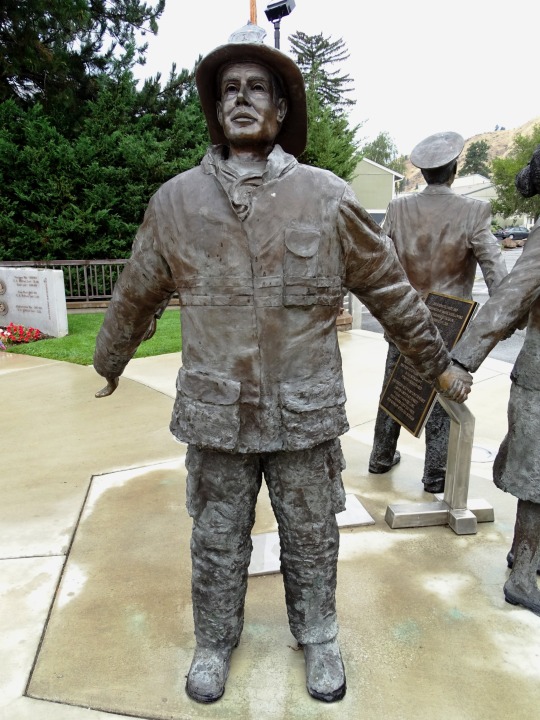

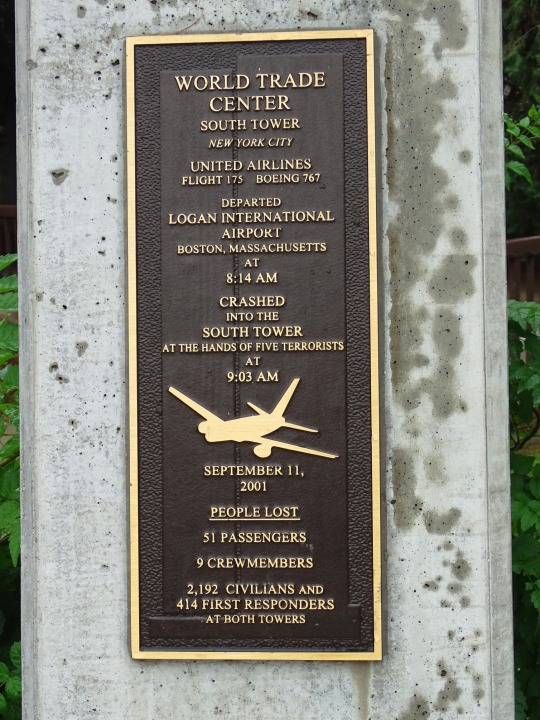
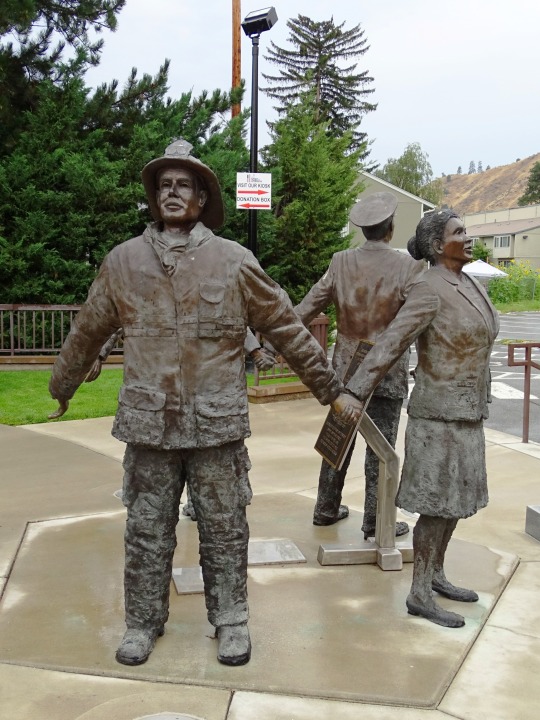

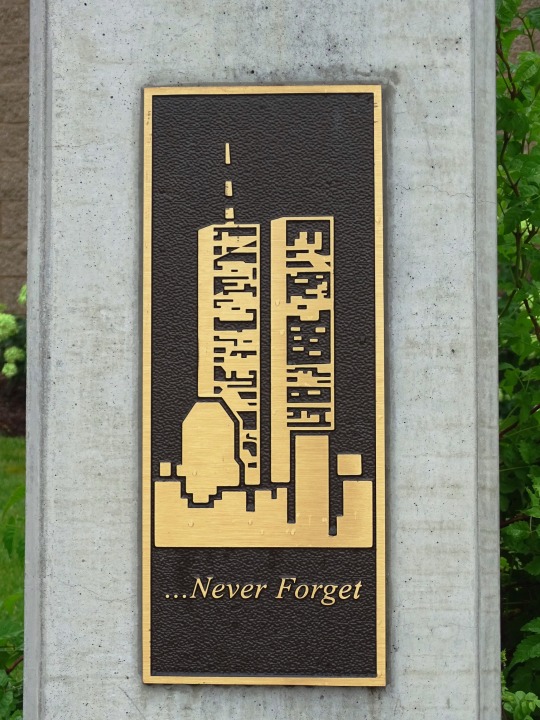
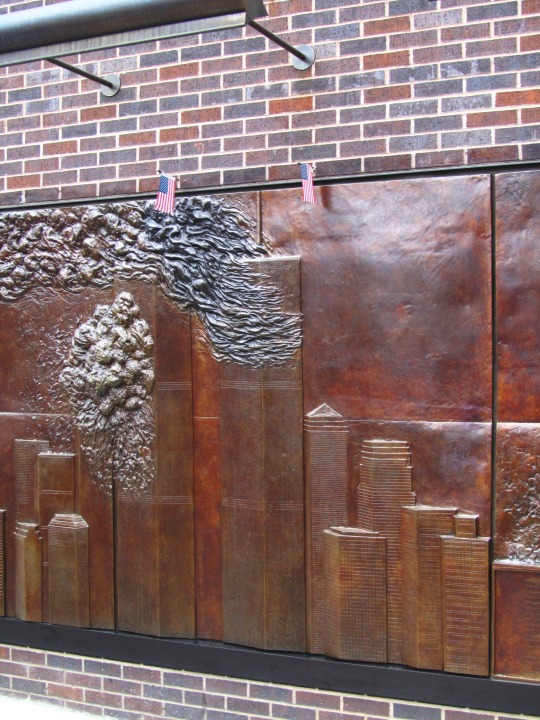


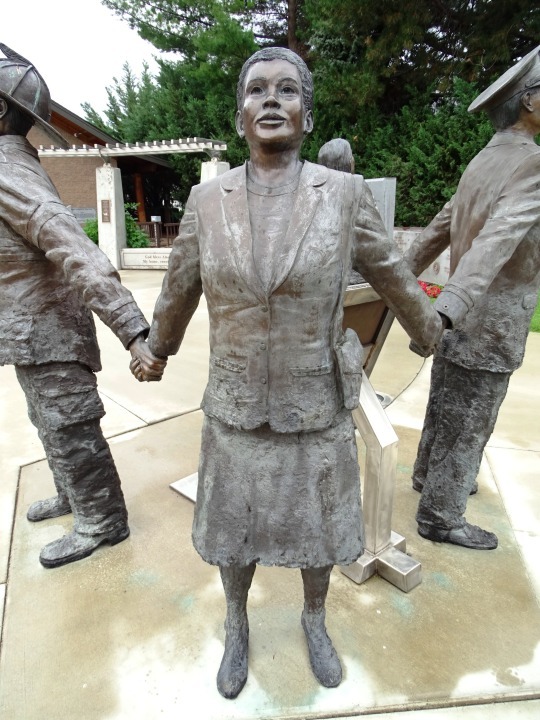

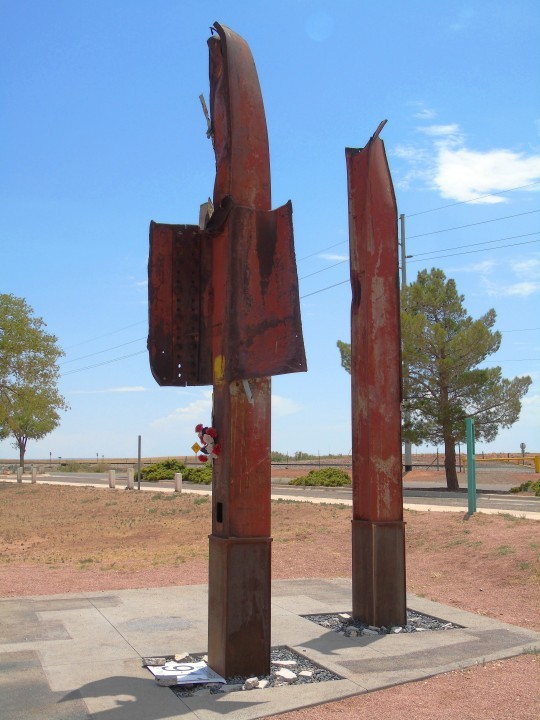
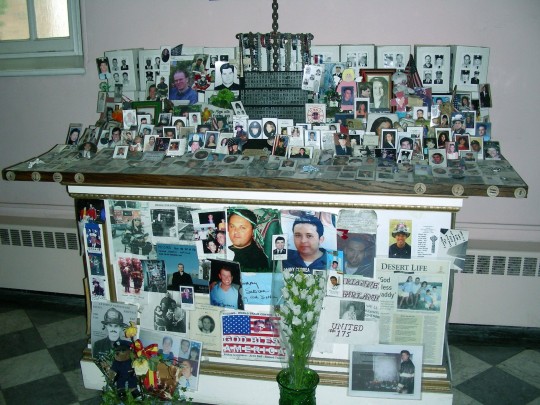


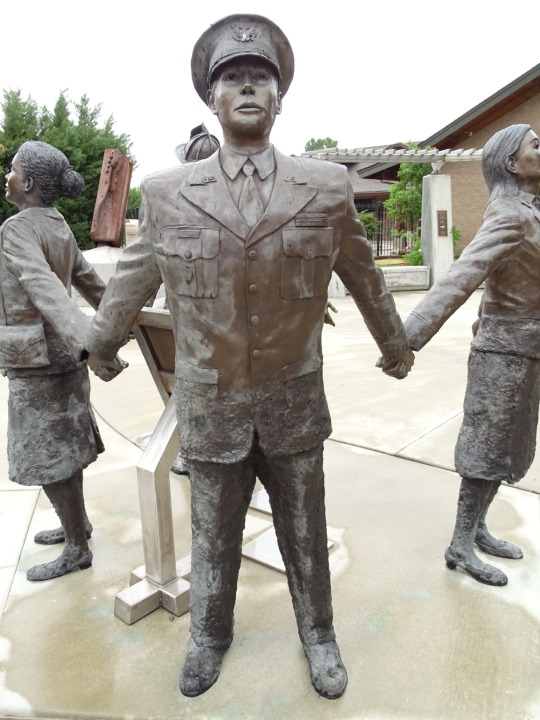
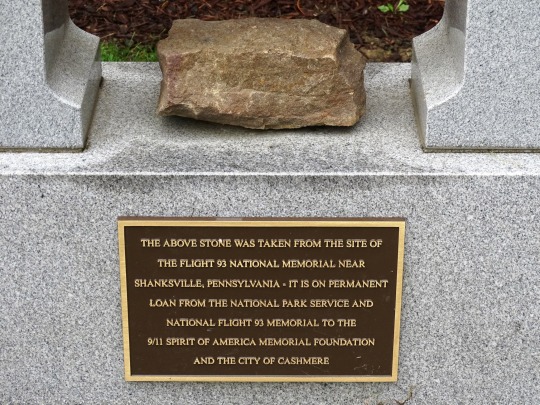
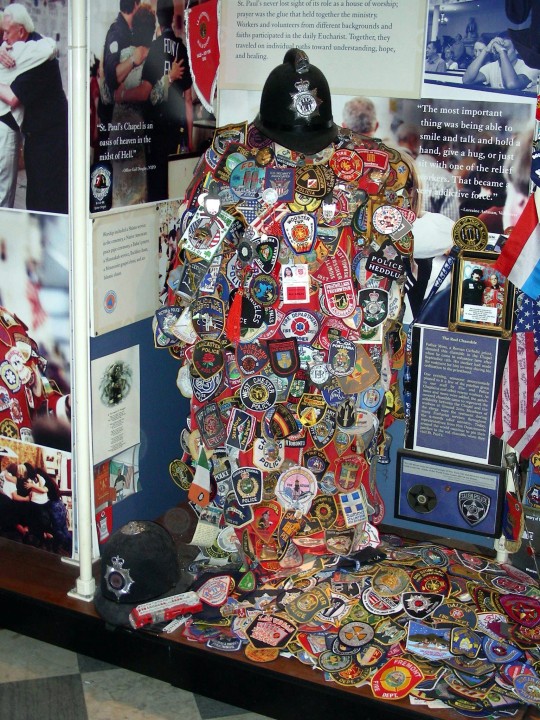

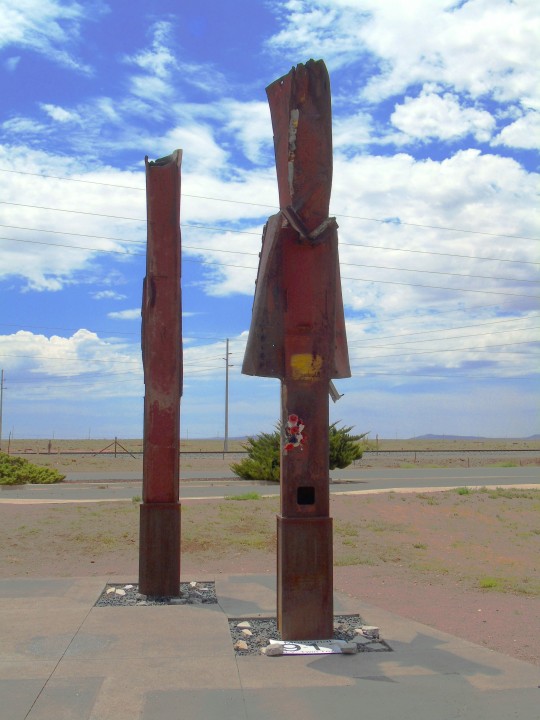
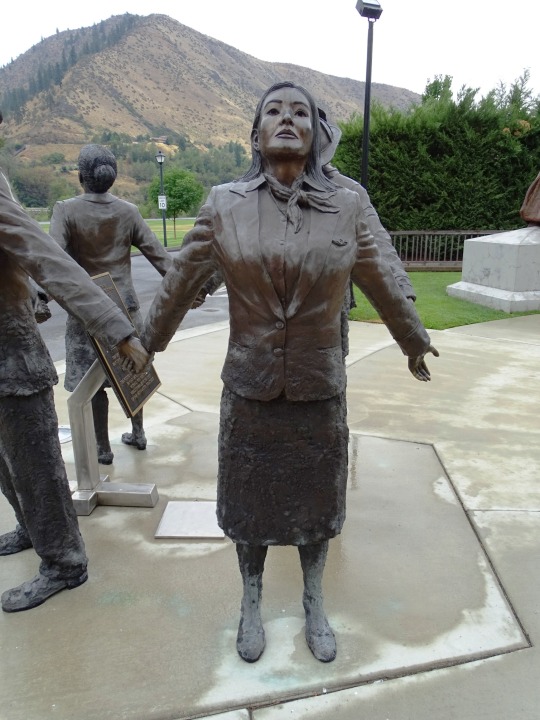
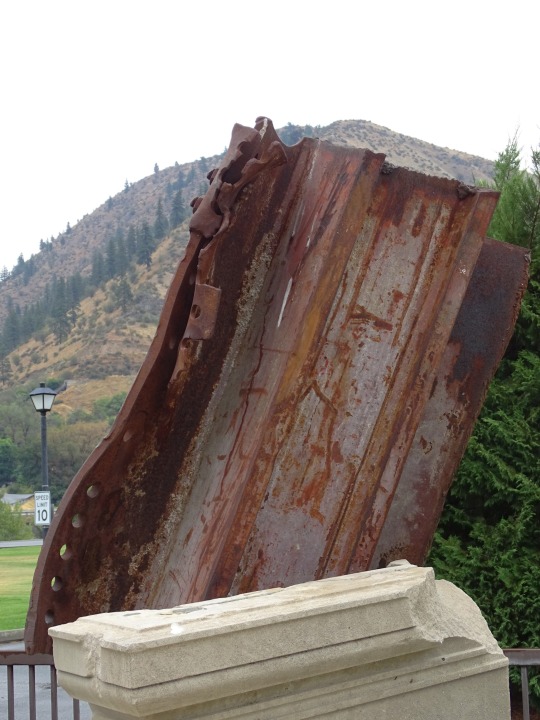
Patriot Day
Honor those who died in the September 11th terrorist attacks, as well as those who risked their lives to save others, on the ground in New York and on United 93.
Patriot Day falls on 11th September (also commonly known as ‘Nine-Eleven’) and is remembered globally as the anniversary of the catastrophic terrorist attacks on the USA of 11th September 2001.
Learn about Patriot Day
Embedded in the memories of everyone who lived through it, this was the day four jet planes were hijacked and crashed into the New York World Trade Center and the Pentagon in Arlington, Virginia, causing the deaths of 2,977 people. The fourth plane (United Airlines Flight 93) was directed at Washington DC, but its passengers bravely attempted to take back control and it crashed into a field near Shanksville, Pennsylvania.
The large majority of those lost after the attacks on the Twin Towers were working at or above the points of collision; thousands of people who had gone to work that morning like every other day, found themselves suddenly stranded at the top of a burning skyscraper. A number made the choice to jump from the flaming buildings rather than wait to be caught by the flames or for the building to collapse. No one could forget the terrifying and heartbreaking stories and images captured by the news footage of the day.
In the wake of the World Trade Center collisions, many brave men and women from the emergency services risked their lives to try to help rescue victims of the attacks, and of them 411 lost their own lives attempting to fight fires and rescue people.
History of Patriot Day
Patriot Day is recognized by US law as the official day of remembrance for these tragic events, and has been observed every year since. Each year on this day, American flags are flown at half-staff to honour and commemorate those lives lost. The US President asks fellow Americans to observe a moment of silence at 8.46am (Eastern Daylight Time), the time of the first plane collision into the North Tower of the World Trade Center.
While the events took place within the USA, the shock and grief experienced in response to the attacks was shared across the globe, and for this reason Patriot Day will be observed not only in America, but all over the world.
How to observe Patriot Day
There are a number of ways that you can observe Patriot Day. One way is by paying honor to those who were on the ground on September 11th, as well as those that lost their lives. There are a number of different ways that you can do this. Thanks to the Internet, we are able to reach out to people that we never would have been able to, and so you can always post a message on social media.
If you don’t know much about the attacks because you were too young at the time, it is a good idea to spend some time doing a bit of research about the occasion. On this date, four airliners carrying passengers, which were bound for California from northeastern airports in the United States, were hijacked by terrorists of al-Qaeda (19 in total).
Two of the planes crashed into the North and South twin towers of the World Trade Center in Lower Manhattan. This was United Airlines Flight 175 and American Airlines Flight 11. Both of the 110 story towers collapsed within an hour and 42 minutes. All of the other buildings in the World Trade Center complex collapsed either partially or completely because of the resulting fires and debris.
The third plane crashed into the Pentagon. This was American Airlines Flight 77. This resulted in the west side of the headquarters for the United States Department of Defense collapsing partially. The fourth plane was flown in the direction of Washington D.C. This was United Airlines Flight 93. However, passengers thwarted the hijackers, and the plane crashed into a field in Pennsylvania, potentially saving many lives.
There is a great film that focuses on the fourth flight – United Airlines Flight 93. The film is called United 93, and it was released in 2006. The film aims to take you through the events of what happened on the plane, focusing on the passengers responding to the hijackers in order to direct the plane away from Washington D.C. The film received critical acclaim, winning a number of awards.
The film is a great watch. It shows how the passengers came together to revolt against the hijackers, despite knowing that their lives were at very high risk. While they ultimately lost their lives in the end, they stopped the terrorists from reaching their intended target, saving many more lives in the process.
It is also a good idea to use this day to pay honor to the people who died on the 11th of September. This not only includes those on board the aircrafts, but those who died as a consequence of the collapsing buildings and the brave men and women who risked their lives to try and help those in danger. In total, 2,977 victims died on this day, with there being more than 6,000 injuries. Most of the people who died were civilians. However, there were also 71 law enforcement officers who died and 343 firefighters. Why not spend some time reading up on them to show that we will never forget!
Source
#911 Memorial Garden by Gordon Huether#Napa#USA#California#Arizona#Winslow#John Jackson#FDNY Memorial Wall Story#St. Paul's Chapel#New York City#Lower Manhattan#Cashmere#Washington#Patriot Day#travel#vacation#original photography#cityscape#sculpture#9/11#11 September 2001#summer 2023#landmark#tourist attraction#never forget#architecture
7 notes
·
View notes
Text
How can I prove fault in a truck accident?
Truck accidents in Omaha can lead to severe injuries and complex legal challenges. Proving fault is crucial for securing compensation, and understanding the process can be daunting, especially for those unfamiliar with legal proceedings. This article provides a comprehensive guide on establishing fault in truck accidents, emphasizing the importance of hiring a local truck accident lawyer in Omaha.
Understanding Fault in Truck Accidents
Determining fault in truck accidents involves identifying the party responsible for causing the collision. This process requires a thorough investigation of various factors, including driver behavior, vehicle maintenance records, and adherence to traffic laws. In Omaha, specific regulations govern trucking operations, making it essential to work with professionals familiar with local laws.
Steps to Prove Fault in a Truck Accident
Gather Evidence at the Scene
Photographs and Videos: Capture images of vehicle positions, road conditions, traffic signs, and any visible damages.
Witness Statements: Collect contact information and statements from witnesses present at the scene.
Police Reports: Obtain a copy of the official accident report filed by law enforcement.
Examine Driver Records
Logbooks: Review the truck driver's logbooks to ensure compliance with hours-of-service regulations.
Licensing and Training: Verify the driver's qualifications and training records.
Inspect Vehicle Maintenance Records
Maintenance Logs: Check for regular maintenance and any reported mechanical issues.
Inspection Reports: Review records of routine inspections and any necessary repairs.
Analyze Electronic Data
Event Data Recorder (EDR): Access data from the truck's EDR, which records information like speed, braking, and engine performance.
GPS Data: Utilize GPS information to track the truck's route and movements leading up to the accident.
Consult Experts
Accident Reconstruction Specialists: Engage professionals to recreate the accident scenario and determine contributing factors.
Medical Experts: Obtain medical evaluations to link injuries directly to the accident.
The Importance of Hiring a Local Truck Accident Lawyer in Omaha
Navigating the complexities of truck accident cases requires specialized legal expertise. Hiring a local truck accident lawyer in Omaha offers several advantages:
Knowledge of Local Regulations: Local attorneys are well-versed in Nebraska's trucking laws and regulations, ensuring compliance and effective case strategies.
Familiarity with Local Courts: An Omaha-based lawyer understands the local court system, including procedures and personnel, which can be beneficial during litigation.
Access to Local Resources: Local attorneys have established networks with experts and investigators in the area, facilitating a thorough investigation.
Key Considerations When Choosing a Truck Accident Lawyer in Omaha
Selecting the right attorney is crucial for a successful outcome. Consider the following factors:
Expertise in Truck Accident Cases: Ensure the lawyer specializes in truck accident claims and has a track record of successful outcomes.
Success Rates: Inquire about the attorney's history of settlements and verdicts in similar cases.
Local Knowledge: A lawyer familiar with Omaha's legal landscape can navigate the system more effectively.
Tips for Evaluating Omaha-Based Truck Accident Lawyers
Check Local Reviews: Research client testimonials and reviews to gauge the attorney's reputation and client satisfaction.
Assess Credentials: Verify the lawyer's education, certifications, and memberships in professional organizations.
Discuss Case Strategies: During consultations, ask about the proposed approach to your case and assess their communication style.
Benefits of Hiring an Omaha Truck Accident Attorney
Understanding of Regional Regulations: Local attorneys are adept at navigating Nebraska's specific trucking laws.
Established Networks: They have connections with local experts, which can be instrumental in building a strong case.
Personalized Attention: A local lawyer is more accessible for meetings and updates, ensuring personalized service.
Key Features to Look for in a Truck Accident Lawyer
Experience with Truck Accident Cases
Strong Negotiation Skills
Trial Experience
Transparent Fee Structure
Compassionate Approach
Conclusion
Proving fault in a truck accident in Omaha necessitates a comprehensive approach and the expertise of a seasoned attorney. By hiring a local truck accident lawyer in Omaha, you benefit from their knowledge of regional regulations, local court systems, and established networks, all of which are pivotal in securing a favorable outcome. Take the time to evaluate potential lawyers based on their expertise, success rates, and client reviews to ensure you choose the best representation for your case.
For a directory of reputable attorneys in Omaha, visit the Nebraska State Bar Association.
3 notes
·
View notes
Text

HOPE
Life is a not a coincidence, it is a collision of many souls colliding with one another to overcome, learn, journey, and unite. In my circumstance, I was presented with a divine karmic counterpart, during my recovery from destruction, that enabled me the courage to walk forward within life. This man was a man of service, who lived a life of duty and honour and served his constituents and public at large in many jurisdictions. I observed this man as we sat having one of the most influential conversations of my lifetime. Beyond the exterior, he had faced many disappointments, setbacks, sacrifices, doubts, and selflessly dedicated himself to serve and protect others. Although I do not agree with his judgment, moral principles, and what he has allowed to transpire (as I observed his behaviour over a few years), I learned many valuable lessons about how sincerity can turn into empty words, and lack of awareness or mindfulness to another’s internal pain can lead to hurtful painful comments, silence as a means of punishment, and indifference in my time of need. It is within these moments, you compare true empathy and compassion to that of insincerity. Within four years, I held the the greatest hope for this man, I supported mutual causes he advocated for as they aligned with my beliefs and views, only to learn that within time inaction erodes trust and belief in another’s efforts. Without judgment, one has to remain hopeful that what causes apathy, lack of concern, and callous indifference is healed within time. Time has the ability to transform, grant us wisdom and experience, engages us to look deep within, to recognize our actions or inaction, judgment, anger or despair are misguided reactionary responses however, are not the root cause of our problem. One has to question, “What breaks an individual’s spirit to lack compassion?.” Is carelessness a defence mechanism of reaching a tolerance of no return, where one essentially becomes immune and numb to all circumstances, is it the environment to which one surrounds themselves in, that encourages such a response? Or is it a projection from the mistreatment and neglect that caused intolerable pain and suffering, that fosters fear from opening to another again? Or perhaps, was this individual to reflect or mirror deep unacknowledged pain I felt within that was manifested or projected for my internal recovery or self awareness? The divine will always introduce karmic connections, to unveil what we require to acknowledge, to heal internally, to move beyond our stagnated state of ignorance or arrogance of refusing to change. Beyond what is apparent, unwanted deliberate infliction of pain, which causes profound suffering is collectively shared within the conscious state of many, and can manifest in a myriad of ways. Suffering is one of the greatest pains within all of existence. The key is to learn from your experiences, reach a level of acceptance and forgiveness, and within time, dedicate focus and energy to healing your fragments within.
To selflessly dedicate oneself to another is to hold life at the most sacred level, which is unconditional love and honour. It may come in the form of a recovered alcoholic who lives for their child or parent, a police officer that places themselves into the line of fire out of duty, a man or woman that encounters another at the brink of being at life’s unfortunate edge and comforts them with their words, a Father or Mother desperate for their child to live again, a guardian that recognizes abandonment and demonstrates that blood does not constitute family, or a spiritual empath that sacrifices their life to help those unknowingly with selfless dedication. A heart can be given in multiple ways, a promise, the synchronization of two heartbeats as two loves embrace, a silent understanding of comradery, or the internal heartbreak to enable the soul to recognize those that will repair the fragments, or the selfless dedication of offering heart energy to save an individual from the brink of a heart attack. A heart can be given in a multitude of ways, and we must honour those that operate on patients to save their lives with pacemakers, which then in turn, after a life well lived, old pacemakers can be donated to a dog in need. We are built to give, feel, overcome, love passionately, cry effortlessly, heal optimistically, and live authentically. We are human, and our ability to feel is what unites, what causes us to collide, and represents the tapestry of mosaics that make us one with all there is.
The issue with life is we are experiencing a significant paradox, those that want instant gratification and those that live in presence, the moment, that remain curious and are brave to accept the gift of patience rather than control or greed. Often we might ask, what is the rush? When we allow the Universe to unveil our routes, we then live and embrace life in the moment, rather than force. Force leads to control, manipulation, and illusionary fabrications of the “illusionary” of what we hope to occur, rather than what is. What if within the moments of our awakening, or awaited arrival of things to come, we could just embrace the essence of time. Quantum or not, we should move fluidly into what is for us, rather than comparison of where others are within their journey. When we are placed in judgment, we rob our existence of the joy we are afforded. Consider that another’s blessing was continuous prayers that may have not been remedied or answered immediately, focus on what pain or tribulations another must have endured to reach their final destination or state of enlightenment. We may not change, however, internally we are aware that we are not the same. As the old adage goes, a life well lived, is one that embraces all experiences, forgives easily, learns abundantly, and walks with no destination in mind, for we are never lost, we are divinely guided. Come what may, what is meant for you, will never pass you by.
One moment can change you profoundly for the rest of your life. No one is a stranger for more than a moment, and life has the ability to usher in profound change within a blink of an eye. We have all experienced encounters of divine guidance when we are at the precipice of fundamental metaphysical change. Within our trauma, we vividly open ourselves up to reach the point of our core wound that we consciously concealed under layers of experiences to enable us to lock away the memories in an effort to forget. Memories are powerful, they signify our greatest achievements, upheavals, traumas, depredatory experiences, moments of despair, highlight of our most precious moments, and unlock exchanges with karmic counterparts that unite two souls to heal their past generational wounds.
What if for a moment you were able to meet your past life counterpart. What words would you convey? What emotions would surface? What within your minds eye would project during your encounter? How is it that two souls can be separated, only to be reunited within another life for a fixed purpose of uniting as a collective soul tribe, a kindred soulmate, a karmic counterpart, or another soul that mirrors what you are unable to heal within this lifetime. Our stories connect each and every one of us, and within life, nothing if anything is ever a coincidence.
Many claim that they uphold honourable intentions, are a pillar of virtue, or act in accordance with integrity. At the core, how can we define the virtue of another when we are all made intrinsically of flaws. Within every individual, are components and elements of virtue and dishonour. A single event can turn a virtuous soul into a villain, and an act of cruelty can morph another into recognition and realization of the errors of their ways. If we are not born to, at times make mistakes, then how do we learn as human beings how to rectify them at our purest state of existence? Our souls, within our conscious state are built to withstand, crumble, feel every spectrum of emotions, and merge with another to collide to form life itself. We often think of ourselves as separate however, in essence, we are all are a collective, united by love, driven by our desires, visions, and passions to be architects within our own lives, constructing new forms of reform, to support and guide future generations.
A moment in time can pause during a significant kiss, a kind touch, a warm embrace, silence between two friends that support one another without words, or the moments of inaction in times of great transformations. At periods of time, you can sit across from another that you have lived with and live two different realities, like two ships passing in the night. Our moments are what shape us, our solitude is what molds us, and our inner sanctum is revealed in moments of deep reflection of silence, when sacred answers emerge to the surface. One cannot comprehend the concept of peace without understanding the terrors of great destruction and devastation. Progress can not be achieved without the recognition of when the human spirit gives up all hope, remains submerged in stagnation our of fear, only to learn that the element of powerless is born from the root of sacrifice.
Many often question, “Are we to live with pain?,” pain of dedication, regret, sacrifice, shame, or despair? Or is our pain, our greatest core root, the fuel for us to recognize that we must rise above devastation and destruction, elevate to new awakenings and understandings, that pain is necessary and paramount for change, an ingredient for internal reformation to emerge, to lead us to our enlightened renaissance. You cannot become a strong force, until you have learned the spectrum of suffering at the greatest magnitude. It is within those moments of duty and dedication, that you recognize what you face will forever change you at your core. If you do not propel to the next level, you deprive yourself of the learning experiences that will enable you to reunite and recover the fragments that you may have parted within, to become whole. There is no experience that you cannot overcome or face with great strength, resilience, and fortitude.
How do we define a hero? Is it past actions that are juxtaposed with inaction in the present? Is it the ability to stand in great danger with the intent to sacrifice for the higher good? Is it the moments when we stand for what we know to be true and just, despite the inability for others to take a stand or to stand in their true power? Is it the ability to forgive, and set the soul free, to enable the other to experience their life beyond the anger? Or is it resigned for those that are present when others are absent? If we are then to trust another, or to build trust, it has to then be based on action rather than inaction. When we compare the dichotomies of those that act with good intent, opposed to those that act in hypocritical fashion of false humbleness, we then observe, learn, and recognize that responsiveness is a virtue whereas, reactionary gestures are not. Responsiveness is the ability to act, to uphold virtue at its highest magnitude, to do what is right despite what can be gained, or the consequence if they remain silent.
How do we counter or juxtapose a silent culture of allowing victims or those that have been deeply affected or effected by trauma to remain as the other? Where has humility or humanity gone when we allow the suffering of others to persist? When the reward for revenge rather than justice takes root, the scales of justice then remain unbalanced. Unless those involved understand at the core, the suffering that a victim or those that have experienced severe persecution have endured, only then, can they understand and become inclusive to fully respect, respond, and honour the “others” lived experience. To be exceptional, unparalleled, and divergent, one has to live with moral integrity and virtue, and base every movement not on the act of another, but taking accountability and responsibility for what needs to be done, in the time of need, which is indicative of true authentic leadership. When we live beyond what we set as our legacy, we become poetry and essentially genuine movement in action, acting in accordance with our highest moral judgement and authentic genuine nature.
Beyond pride, greed, jealousy, comparison, or negative misguided attributes that can diminish one’s honour, we all need to act in accordance of respect, dignity, compassion, empathy, and duty. To have dedication is to encompass consistency, dependability, and focus. It is to act in what is right for the collective rather than caving in for the demands of the few. To be a representative for another, we must always remain mindful that we are responsive, that we honour our word, that within every community we enhance inclusiveness, equality, and enable diverse views to prevail. To be divergent in thinking, is to be innovative, to act beyond what is expected, and to be a hero to all. Those that take the effort to plunge into the unknown, often are those that do not remain on the sidelines to watch.
The core of trauma, is multifaceted and contrapuntal in nature because with every peel unveils multiple ripples and grains that are fragile, until the core is unveiled. It is paramount that those that experience trauma or any forms of abuse receive immediate care. The lives of those affected by assault are forever changed, and their life becomes splintered and fragmented, as they are a shell of what they once were. Within the silent culture of lack of empathy and silence, it reduces, breaks, destroys, and diminishes trust in those who believed that those who serve and protect are to uphold the law and order. Those that we place in high responsibility, at the highest magnitude, to represent us, and assist in the healing process, have to always remain in a state of compassion to resist the state of becoming misguided or temporarily despondent. It is essential that if an organization, institutions, or those that dedicate their support to others, experience an oversight, or in other words, drop the ball in helping a victim, they must immediately remain open, free from pride, to enable victims to receive help from another location if needed. Mental health is a multidisciplinary, multifaceted, and interdisciplinary field where it may require a community to support, rehabilitate, or assist another. Advocating for human welfare, advocacy, and rights, needs to be entrenched into all systems, a collective effort to dissolve ill intent, pride, greed, or unresponsive agendas to proceed. If we allow or permit a silent culture to persist and exist, it silences and paralyzes those that may not have received aid in their time of need. Silence is not an answer. For anyone that is misguided about victims that have experienced forms of abuse, no was a complete sentence, that was not respected by a perpetrator. There should not be an expiration date to victims that require help, as trauma will emerge in unknown ways, at any period of time. Advocacy is essential in reform and to restore safety, peace, and refuge for those in their periods of need.
True leadership begins with altruism and advocacy for those who cannot speak for themselves. When we as a collective stand together as a united front, to offer our empathy and compassion, it represents true humanitarian efforts, humility, respect, and the greatest force of love. We are not separate from one another, we are all one. Beyond the silence, ignorance, pride, and ill intent, we must always place ourselves in the scope of what the other is experiencing. When we engage in deep reflection, observation, be change that is required or needed, allow another to express their anger, despair, shame, guilt, we then allow the nurturing process to reign, as another reconnects with the fragments that were once lost. Beyond the experience, reconnect with those during their pivotal moments of turbulence, allocate time and resources to ensure that those the require additional support have the ability to learn their options. Above all, lead with mindful awareness, that communities or individuals may shutdown dialogue, or do not want to see change within the system. Encourage forgiveness at every interval when you recognize or encounter ignorance, and most importantly, remain acutely aware and vigilant of those that enable a culture of violation of trust. Separation, isolation, and fragmentation dissolve the human spirit rather than enhancing cohesiveness. Promoting unity, transparency, consistency, leads to unparalleled recovery and rehabilitation for all involved.
To establish strength, we must collectively move out of isolation and a false sense of helplessness or powerlessness, into a more pronounced stance of true empowerment. You have the power to change and navigate the course of your life. Give yourself the permission to not remain in situations that do not serve your highest good. Avoidance is a temporary state of mind however, when we enter into a state of fearlessness, we are then able to fully embrace, accept, recognize, observe, and internalize our core roots, that define our healing process. Our vulnerability enables us to trust, to speak our truth, and to move out of a place of shame into a state of power, which then enables all to regain their sense of safety and trust. Beyond age, gender, or orientation, when one is faced with a catastrophic event that destroys their foundational sense of self, or challenges their worth, we learn that the process of recovery requires time, patience, care, and understanding to help a victim regain their sense of control, safety, and trust. Beyond the scars, acknowledge your truth, accept what cannot be changed, liberate yourself by giving yourself the permission and opportunity to recover in incremental stages, and learn to embrace your feelings as they surface without judgement. Nurture yourself, and remain mindful and vigilant of what you consume spiritually, emotionally, mentally, and physically on a daily basis. When we evoke discernment, boundaries, define what we no longer will partake in, remain in our true power of the present, we usher in cathartic change that transforms our soul, and enables our true authentic self to rise again. Recovery, incremental leaps, and community engagement, enforces your inner voice in a meaningful way, and sets the tone and pace for rehabilitation. You are more than your experiences, you are consciousness rising, with an unlimited ability to heal, repair, and recover, in your own divine time.
#mindset#empowerment#empower#love#life#inspiration#motivation#peace#inspire#motivate#faith#family#parents#heal#healing#emotional healing#emotional health#healing journey#mental health#self healing#healthcare#health and wellness#gratitude#understanding#wisdom#compassion#self compassion#acceptance#courage#kindness
3 notes
·
View notes